The Top 10 Cryptocurrency Wallets for 2025
As we venture deeper into the digital age, the importance of securing our virtual assets cannot be overstated. Cryptocurrency wallets serve as the gateway to managing and safeguarding your digital currencies. In 2025, the landscape of cryptocurrency wallets is expected to evolve significantly, with advancements in technology and user experience. This article explores the leading cryptocurrency wallets that are set to dominate the market, highlighting their features, security measures, and usability to help you make informed choices for your digital assets.
Understanding cryptocurrency wallets is crucial for managing digital assets. A cryptocurrency wallet is not just a place to store your coins; it's a sophisticated tool that allows you to send, receive, and manage your digital currencies securely. There are various types of wallets available, including hardware, software, mobile, web, and multi-currency wallets. Each type has its own unique features and security protocols, making it essential to choose the right one based on your needs. The importance of securing cryptocurrencies cannot be emphasized enough, as the digital world is fraught with risks such as hacking, phishing, and other cyber threats.
Hardware wallets are physical devices designed to securely store cryptocurrencies offline. They are often considered one of the safest options available due to their ability to keep your private keys away from the internet, minimizing the risk of hacks. Unlike software wallets that are susceptible to malware and phishing attacks, hardware wallets provide a robust layer of security. Popular models such as the Ledger Nano X and Trezor Model T are known for their reliability and user-friendliness. These devices not only store your cryptocurrencies but also support a wide range of digital assets, making them versatile for any crypto enthusiast.
In 2025, several hardware wallets are expected to lead the market. Let's take a closer look at some of the top contenders:
| Wallet | Features | Price |
|---|---|---|
| Ledger Nano X | Bluetooth support, multi-currency, secure chip | $149 |
| Trezor Model T | Touchscreen, password manager, multi-currency | $219 |
| KeepKey | Large display, backup recovery, multi-currency | $79 |
Setting up a hardware wallet is straightforward and can be done in a few simple steps:
- Purchase a reputable hardware wallet from an official source.
- Connect the device to your computer or mobile device.
- Follow the on-screen instructions to create a new wallet.
- Securely write down your recovery phrase and store it in a safe place.
- Transfer your cryptocurrencies to your new wallet.
Software wallets offer a convenient way to manage cryptocurrencies through applications on your computer or smartphone. They come in various forms, including desktop wallets, mobile wallets, and online wallets. While software wallets are generally easier to use, they carry some risks since they are connected to the internet. However, many software wallets have advanced security features, such as encryption and two-factor authentication, to protect your assets. In 2025, the competition among software wallets will intensify as developers strive to improve security and user experience.
Some of the software wallets expected to shine in 2025 include:
- Exodus - Known for its user-friendly interface and multi-currency support.
- Atomic Wallet - Offers a decentralized exchange and a wide range of cryptocurrencies.
- Electrum - A lightweight wallet favored by Bitcoin users for its speed and security.
To use software wallets safely, consider the following best practices:
- Always download wallets from official websites.
- Enable two-factor authentication for added security.
- Regularly update your wallet software to patch vulnerabilities.
Mobile wallets provide on-the-go access to cryptocurrencies through smartphones, making them incredibly convenient for everyday transactions. They allow users to send and receive digital currencies quickly and easily. However, with convenience comes risk; mobile wallets can be targets for hackers if not secured properly. It’s essential to choose reputable mobile wallets that offer strong security features.
Some of the most popular mobile wallets in 2025 include:
- Trust Wallet - A decentralized wallet with a built-in DApp browser.
- Coinomi - Supports a wide range of cryptocurrencies and has a user-friendly interface.
- Mycelium - A favorite among Bitcoin users for its advanced privacy features.
To ensure your digital assets remain safe while using mobile wallets, follow these important security tips:
- Keep your phone's operating system and wallet app updated.
- Use strong passwords and biometric security features.
- Avoid connecting to public Wi-Fi when accessing your wallet.
Web wallets allow users to access their cryptocurrencies through a web browser. They are incredibly convenient, as you can access your funds from any device with internet access. However, web wallets carry inherent risks, such as phishing attacks and server vulnerabilities. It's crucial to choose a reliable web wallet that implements robust security measures.
Some of the best web wallets for 2025 include:
- Blockchain.com - Offers a user-friendly interface and strong security features.
- Coinbase - Known for its ease of use and extensive support for various cryptocurrencies.
- Binance - Provides a comprehensive trading platform along with wallet services.
Understanding the risks associated with web wallets is essential. Potential vulnerabilities include:
- Phishing attacks that trick users into revealing their private keys.
- Server breaches that can compromise user data.
- Dependence on third-party services for security.
Multi-currency wallets support various cryptocurrencies, making them versatile for users with diverse portfolios. They allow you to manage multiple digital assets within a single application, simplifying your crypto management. In 2025, the demand for multi-currency wallets is expected to grow as more users diversify their investments.
Some of the top-rated multi-currency wallets for 2025 include:
- Atomic Wallet - Supports over 500 cryptocurrencies and offers a built-in exchange.
- Coinomi - Known for its extensive asset support and user-friendly interface.
- Exodus - Offers a sleek design and multi-asset support.
The advantages of using multi-currency wallets are numerous:
- Convenience of managing multiple assets in one place.
- Cost-effectiveness by minimizing transaction fees.
- Simplified management of diverse cryptocurrency portfolios.
When choosing a cryptocurrency wallet, security is paramount. Essential security features to consider include:
- Encryption of private keys to prevent unauthorized access.
- Two-factor authentication (2FA) for an added layer of protection.
- Backup and recovery options to safeguard against loss.
Two-factor authentication (2FA) adds an extra layer of security by requiring a second form of verification before accessing your wallet. This could be a text message, email confirmation, or an authenticator app. Implementing 2FA is crucial, as it significantly reduces the risk of unauthorized access.
Understanding backup and recovery options is crucial for wallet security. Always create a backup of your wallet, including your recovery phrase, and store it securely. If you ever lose access to your wallet, having a backup ensures that you can recover your funds without hassle.
As we look ahead to 2025, several trends are emerging in the cryptocurrency wallet space. Advancements in technology, user experience, and security enhancements are shaping the future of how we manage digital assets. Wallets are expected to become more integrated with decentralized finance (DeFi) applications, allowing users to interact with various DeFi services directly from their wallets.
As decentralized finance (DeFi) continues to grow, wallet integration becomes essential. Wallets are evolving to support DeFi applications and services, enabling users to lend, borrow, and trade directly from their wallets. This integration will streamline the user experience and open up new opportunities for crypto enthusiasts.
User interface improvements are key to wallet adoption. In 2025, we can expect wallets to feature more intuitive designs, making it easier for users to navigate and manage their assets. Enhanced usability will attract newcomers and experienced users alike, fostering a more inclusive crypto community.
In conclusion, selecting the right cryptocurrency wallet is vital for securing your digital assets. With various options available, it's essential to consider your specific needs and preferences. Whether you opt for a hardware wallet for maximum security or a software wallet for convenience, understanding the features and risks associated with each type will empower you to make informed decisions. As the cryptocurrency landscape continues to evolve, staying informed about the latest trends and best practices will ensure that your digital assets remain safe and accessible.
Q1: What is the safest type of cryptocurrency wallet?
A1: Hardware wallets are generally considered the safest option as they store your private keys offline and are less susceptible to hacking.
Q2: Can I use multiple wallets for my cryptocurrencies?
A2: Yes, many users opt to use a combination of wallet types (hardware, software, mobile) to balance security and convenience.
Q3: How do I recover my wallet if I lose access?
A3: Most wallets provide a recovery phrase during setup. Keep this phrase secure, as it allows you to restore your wallet if you lose access.
Q4: Are web wallets safe to use?
A4: Web wallets can be convenient but carry risks. Always choose reputable services and enable additional security features like 2FA.
Q5: How often should I back up my wallet?
A5: You should back up your wallet whenever you make significant changes, such as adding new assets or after a wallet update. Regular backups are a good practice.
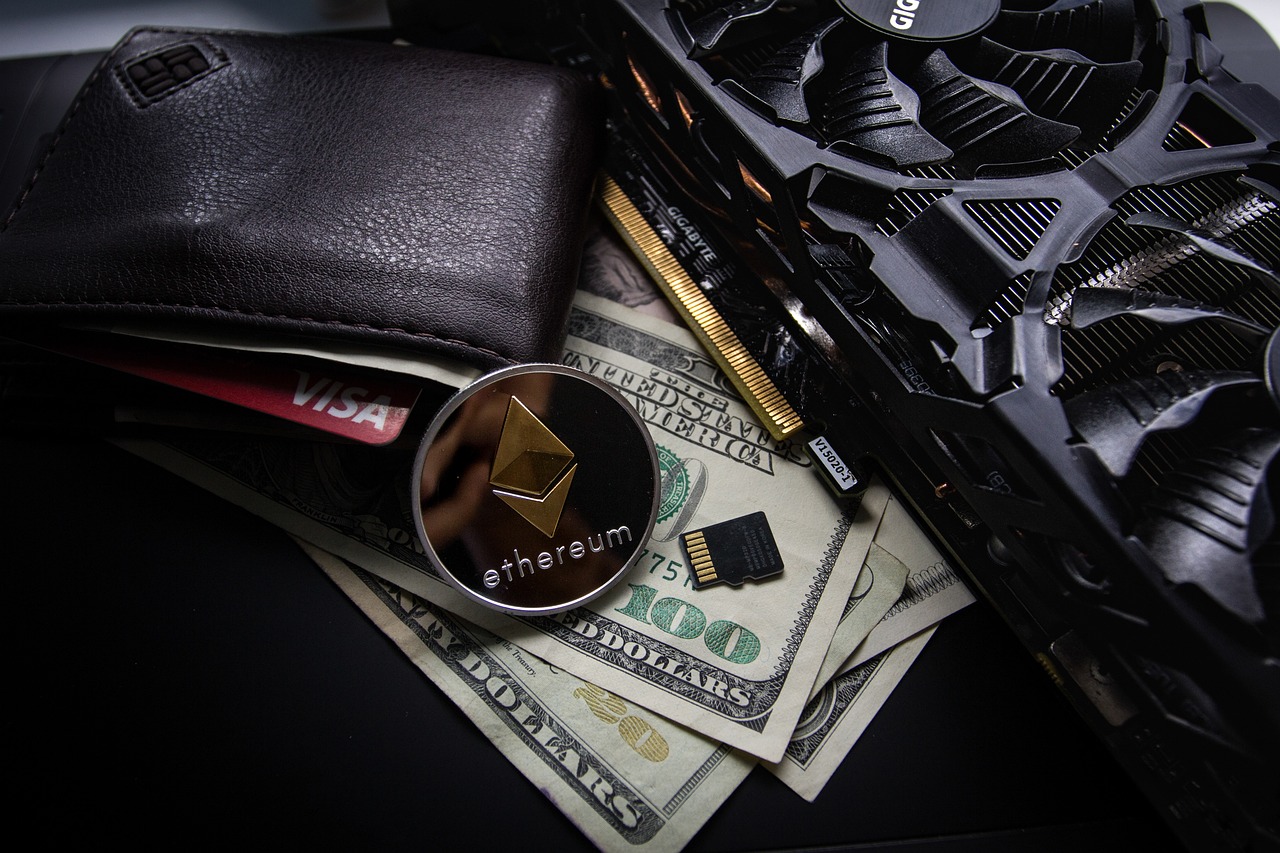
[1. Introduction to Cryptocurrency Wallets]
Understanding cryptocurrency wallets is crucial for managing your digital assets effectively. In the world of cryptocurrencies, a wallet is not just a simple storage solution; it serves as your gateway to the blockchain. Imagine it as a digital safe where you can securely keep your cryptocurrencies, allowing you to send, receive, and track your assets with ease. But what exactly is a cryptocurrency wallet, and why is it so important?
Essentially, a cryptocurrency wallet is a software program or a physical device that allows users to interact with various blockchain networks. There are several types of wallets, each designed to cater to different needs and preferences. Here’s a quick overview of the main types:
- Hardware Wallets: Physical devices that store your cryptocurrencies offline, providing high security against online threats.
- Software Wallets: Applications installed on your computer or smartphone, offering a balance between convenience and security.
- Mobile Wallets: Apps specifically designed for smartphones, enabling easy access to your cryptocurrencies on the go.
- Web Wallets: Browser-based wallets that allow you to access your cryptocurrencies from anywhere with an internet connection.
- Multi-Currency Wallets: Wallets that support multiple cryptocurrencies, making it easier to manage a diverse portfolio.
The importance of these wallets cannot be overstated. They not only provide a means to hold your digital currencies but also play a significant role in ensuring their security. With the rising number of cyber threats and hacks, having a reliable wallet is your first line of defense against potential losses. It's like having a sturdy lock on your front door; it’s essential for keeping your valuables safe.
Furthermore, as the cryptocurrency market continues to evolve, the features and functionalities of wallets are also advancing. In 2025, we can expect wallets to integrate more seamlessly with decentralized finance (DeFi) applications, making it easier for users to manage their investments and yield farming strategies. As you navigate this exciting landscape, understanding the various wallet options will empower you to make informed decisions about your digital assets.
In conclusion, whether you are a seasoned investor or just starting your cryptocurrency journey, choosing the right wallet is vital. It’s not just about storing your coins; it’s about securing your financial future in a digital world. In the upcoming sections, we will explore various types of wallets in greater detail, helping you find the perfect fit for your needs.

[2. Hardware Wallets]
When it comes to safeguarding your digital assets, hardware wallets stand out as one of the most reliable options available. These are physical devices designed to store your cryptocurrencies offline, providing a higher level of security compared to software wallets. Imagine having a safe deposit box for your digital coins; that's essentially what a hardware wallet does. By keeping your private keys offline, hardware wallets minimize the risk of hacks and theft that are prevalent in the online world.
One of the biggest advantages of using hardware wallets is their robust security features. They are immune to malware attacks that can compromise software wallets since they don’t connect to the internet continuously. This offline nature makes them an excellent choice for long-term storage of cryptocurrencies. Additionally, most hardware wallets come equipped with features like PIN codes, seed phrases, and two-factor authentication to ensure that only you can access your funds.
Let’s dive into some of the popular models that are expected to dominate the market in 2025:
| Wallet Model | Price | Key Features |
|---|---|---|
| Trezor Model T | $219 | Touchscreen, Supports over 1,600 coins, Open-source |
| Ledger Nano X | $149 | Bluetooth connectivity, Supports over 1,800 coins, Mobile app |
| SafePal S1 | $39.99 | Affordable, Supports multiple coins, Air-gapped security |
While hardware wallets are an excellent choice for security, they do come with some considerations. For instance, they are not as convenient for frequent transactions as software or mobile wallets. If you're someone who trades regularly, you might find the process of transferring coins to and from a hardware wallet a bit cumbersome. However, for those who prioritize security, the trade-off is often worth it.
Setting up a hardware wallet is straightforward, but it requires some attention to detail. You’ll need to follow the manufacturer’s instructions carefully to ensure that your wallet is configured correctly. It’s important to keep your recovery seed phrase in a safe place, as this is the only way to recover your funds if your device is lost or damaged. Remember, once your coins are in the hardware wallet, they are much safer than being stored on an exchange or a less secure wallet.
In summary, hardware wallets are a fantastic option for anyone serious about securing their cryptocurrency investments. They combine high security with user-friendly features, making them suitable for both beginners and seasoned investors. If you’re planning to hold onto your cryptocurrencies for the long term, investing in a hardware wallet can provide you with peace of mind, knowing that your assets are protected against the numerous threats that exist in the digital landscape.
- What is a hardware wallet? A hardware wallet is a physical device that securely stores your cryptocurrencies offline.
- Are hardware wallets safe? Yes, they are considered one of the safest options for storing cryptocurrencies due to their offline nature and advanced security features.
- Can I use a hardware wallet for daily transactions? While you can, they are more suited for long-term storage. Daily transactions may be more convenient with software or mobile wallets.
- How do I set up a hardware wallet? Follow the manufacturer's instructions carefully, and ensure you safely store your recovery seed phrase.

[2.1. Top Hardware Wallets]
When it comes to securing your cryptocurrency, hardware wallets stand out as one of the most reliable options available. These physical devices are designed to keep your digital assets safe from online threats, making them a popular choice among crypto enthusiasts. As we look ahead to 2025, several hardware wallets are expected to lead the market due to their robust security features, user-friendly interfaces, and compatibility with a wide range of cryptocurrencies.
One of the top contenders is the Trezor Model T. This wallet is known for its sleek design and touch screen, which enhances the user experience. It supports over 1,800 cryptocurrencies, ensuring that users can manage a diverse portfolio with ease. Additionally, Trezor offers exceptional security features, including passphrase entry and advanced recovery options, making it a top choice for security-conscious users.
Another noteworthy option is the Ledger Nano X. This wallet combines portability with powerful security features. With Bluetooth connectivity, users can access their cryptocurrencies on the go without compromising security. The Ledger Nano X supports over 5,500 coins and tokens, making it a versatile choice for anyone looking to manage multiple digital assets. Its secure element chip provides an additional layer of security, ensuring that private keys remain safe even if the device is compromised.
For those who prefer a wallet with a larger screen, the BitBox02 is an excellent choice. This wallet is designed for simplicity and ease of use, featuring a minimalist interface that appeals to both beginners and experienced users. It supports Bitcoin and Ethereum, along with several ERC-20 tokens, making it a solid option for users focused on these major cryptocurrencies. The BitBox02 also emphasizes security with its microSD card backup feature, allowing users to store their recovery data securely.
In addition to these popular models, there are other notable hardware wallets that are gaining traction. For instance, the CoolWallet Pro offers a unique mobile-friendly design, allowing users to manage their assets directly from their smartphones. Its biometric security features and ability to support multiple cryptocurrencies make it an exciting option for mobile users.
To help you compare these top hardware wallets, here’s a quick overview of their key features:
| Wallet | Supported Cryptocurrencies | Key Features |
|---|---|---|
| Trezor Model T | 1,800+ | Touchscreen, Passphrase Entry, Advanced Recovery |
| Ledger Nano X | 5,500+ | Bluetooth, Secure Element Chip, Multi-Currency Support |
| BitBox02 | Bitcoin, Ethereum, ERC-20 Tokens | MicroSD Backup, Minimalist Interface |
| CoolWallet Pro | Multiple Cryptocurrencies | Mobile-Friendly, Biometric Security |
Choosing the right hardware wallet is essential for protecting your digital assets. With the options available in 2025, it’s important to consider your specific needs, whether it’s the number of supported cryptocurrencies, ease of use, or security features. Hardware wallets not only provide peace of mind but also empower users to take full control of their cryptocurrency investments.
Q: What is a hardware wallet?
A: A hardware wallet is a physical device that securely stores your cryptocurrency offline, protecting it from online threats.
Q: Are hardware wallets safe?
A: Yes, hardware wallets are considered one of the safest options for storing cryptocurrencies due to their offline storage and advanced security features.
Q: How do I set up a hardware wallet?
A: Setting up a hardware wallet typically involves connecting it to your computer or smartphone, downloading the necessary software, and following the on-screen instructions to create a secure account.
Q: Can I use multiple hardware wallets?
A: Absolutely! Many users opt for multiple hardware wallets to diversify their security measures and manage different types of cryptocurrencies.
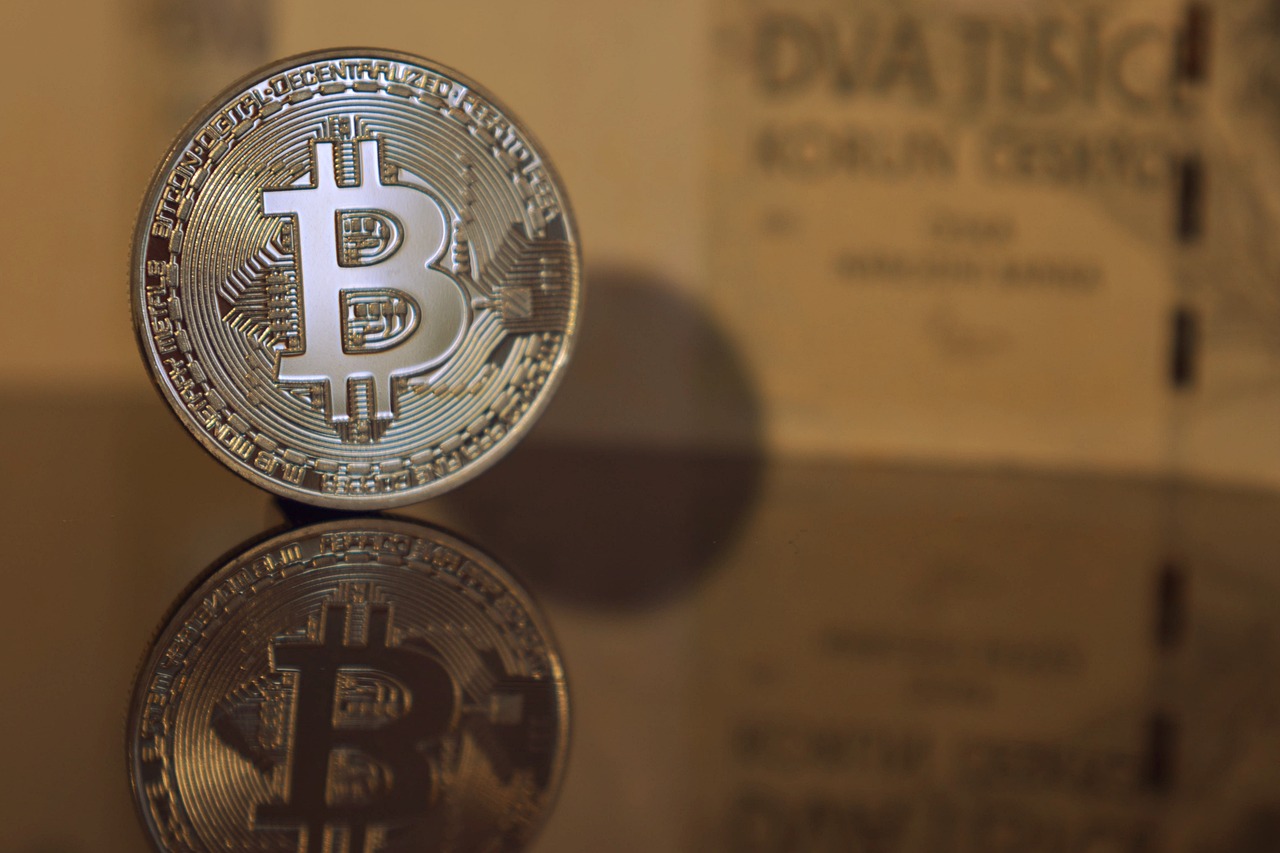
[2.2. Setting Up a Hardware Wallet]
Setting up a hardware wallet might seem daunting at first, but it's actually a straightforward process that can significantly enhance the security of your cryptocurrency assets. Imagine it as installing a high-tech safe in your home—once it's set up correctly, you can rest easy knowing your valuables are secure. Here’s a step-by-step guide to get you started.
First, you'll need to choose a reputable hardware wallet. Some of the most popular options include Trezor, Ledger, and KeepKey. Each of these wallets has its own unique features, so it’s worth doing a bit of research to determine which one best fits your needs. Once you've selected your wallet, follow these general steps:
- Unbox Your Wallet: When you receive your hardware wallet, carefully unbox it. Ensure that the packaging is intact and that there are no signs of tampering.
- Download the Wallet Software: Visit the official website of your chosen wallet and download the corresponding software. This software is essential for managing your cryptocurrencies and interacting with the wallet.
- Connect Your Wallet: Use a USB cable to connect your hardware wallet to your computer. Ensure that you are using a secure, trusted device to prevent malware or hacking attempts.
- Follow the Setup Instructions: The wallet software will guide you through the setup process. This typically includes creating a new wallet or restoring an existing one.
- Generate Your Recovery Seed: During the setup, you will be prompted to generate a recovery seed—a series of words that acts as a backup for your wallet. Write this down on paper and store it in a safe place. Do not share it with anyone!
- Set a PIN Code: Most hardware wallets allow you to set a PIN code for added security. Choose a strong PIN that you can remember but others cannot easily guess.
After completing these steps, your hardware wallet should be ready for use. You can now transfer your cryptocurrencies into it. The process is typically as simple as clicking ‘Receive’ in the wallet software, which will generate a unique address for you to send your assets. Always double-check the address before confirming any transactions—this is crucial to avoid sending your funds to the wrong place.
Finally, remember that regular maintenance is key to keeping your wallet secure. Keep your wallet software updated to benefit from the latest security features and enhancements. Also, periodically check your recovery seed and PIN to ensure they remain secure and accessible only to you.
In conclusion, setting up a hardware wallet is an essential step for anyone serious about protecting their digital assets. Think of it as locking your valuables in a safe—once you’ve set it up, you can rest easier knowing your cryptocurrencies are secure from online threats.
1. What is a hardware wallet?
A hardware wallet is a physical device designed to securely store your cryptocurrencies offline, providing a higher level of security compared to software wallets.
2. Are hardware wallets safe?
Yes, hardware wallets are considered one of the safest options for storing cryptocurrencies as they are less susceptible to hacking and malware attacks.
3. How do I recover my wallet if I lose it?
If you lose your hardware wallet, you can recover your funds using the recovery seed that you generated during the setup. It’s crucial to keep this seed secure and accessible only to you.
4. Can I use a hardware wallet with multiple cryptocurrencies?
Yes, many hardware wallets support a wide range of cryptocurrencies, allowing you to manage multiple assets from a single device.
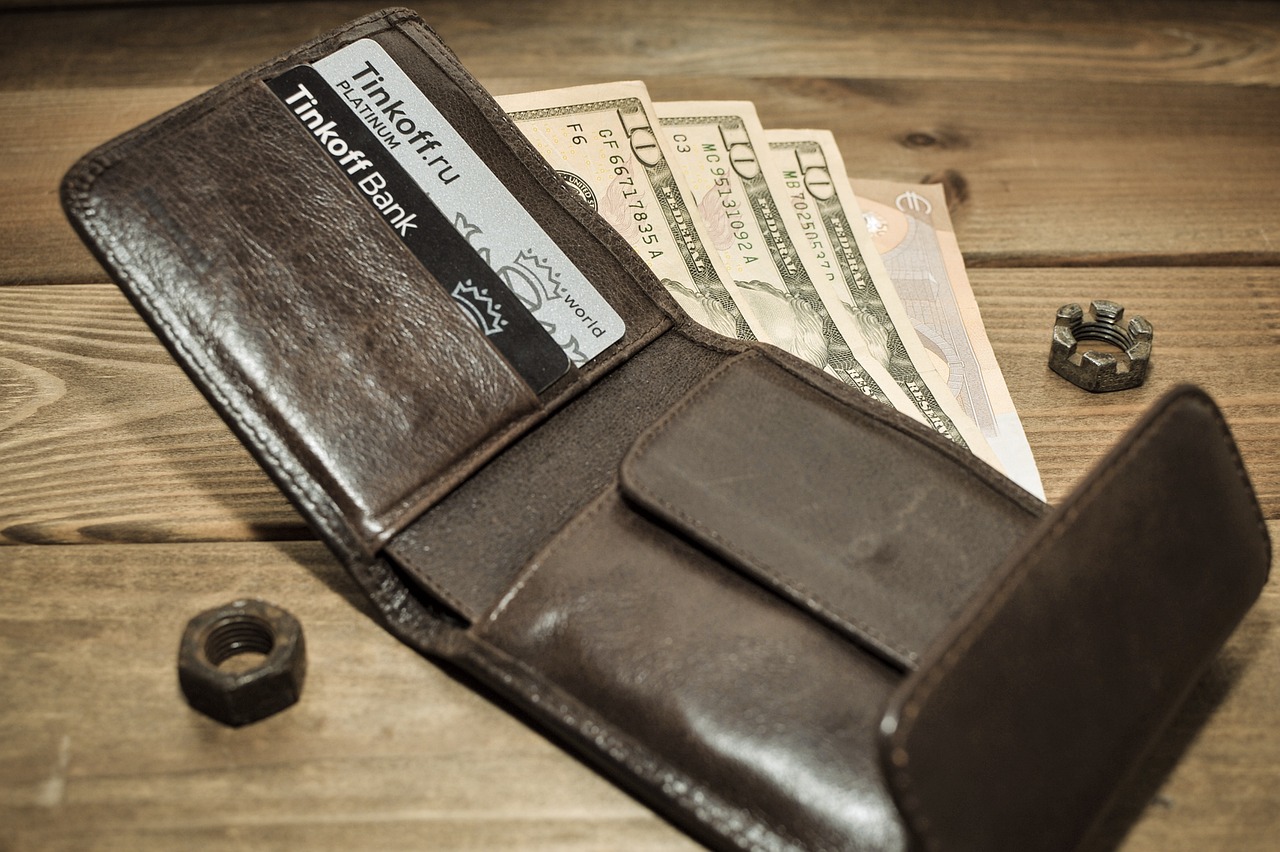
[3. Software Wallets]
Software wallets are becoming increasingly popular among cryptocurrency enthusiasts due to their convenience and ease of use. Unlike hardware wallets, which require physical devices, software wallets exist as applications on your computer or mobile device. This means you can access your cryptocurrencies from anywhere, making them an attractive option for both beginners and seasoned traders alike. However, with great convenience comes great responsibility, and understanding the different types of software wallets is crucial for keeping your digital assets secure.
There are primarily three types of software wallets: desktop wallets, mobile wallets, and web wallets. Each type has its unique features and benefits, catering to different user preferences and needs. Desktop wallets are installed directly on your computer, providing a higher level of security compared to web wallets, which are accessible via a browser. Mobile wallets, on the other hand, offer the ultimate convenience, allowing users to manage their cryptocurrencies on the go.
One of the standout features of software wallets is their user-friendly interfaces. Most applications are designed with the average user in mind, which means even those who are not tech-savvy can navigate them with ease. For instance, many software wallets come equipped with built-in exchanges, allowing users to swap cryptocurrencies without leaving the app. This integration not only saves time but also enhances the overall user experience by simplifying the trading process.
However, it’s important to note that while software wallets provide convenience, they are generally considered less secure than hardware wallets. This is primarily due to their connection to the internet, which exposes them to potential hacking threats. To mitigate these risks, users should adopt best practices such as:
- Regularly updating the wallet application to patch any security vulnerabilities.
- Using strong, unique passwords and enabling two-factor authentication (2FA) whenever possible.
- Backing up wallet data to avoid losing access to funds in case of device failure.
In summary, software wallets offer a balance of convenience and functionality, making them an excellent choice for those who prioritize accessibility. However, it’s essential to remain vigilant about security practices to protect your digital assets. As we move forward into 2025, we can expect software wallets to continue evolving, incorporating more advanced security features and user-friendly designs to cater to the growing cryptocurrency community.
Q1: Are software wallets safe for storing cryptocurrencies?
A1: While software wallets are convenient, they are generally less secure than hardware wallets. Implementing strong security measures, such as 2FA and regular updates, can help enhance their safety.
Q2: Can I use multiple software wallets at the same time?
A2: Yes, many users opt to use multiple software wallets to diversify their holdings and enhance security. Just ensure you keep track of your private keys and backups for each wallet.
Q3: What should I do if I lose access to my software wallet?
A3: If you’ve backed up your wallet data, you can restore your access using the recovery phrase or backup file. If not, unfortunately, you may lose access to your funds.
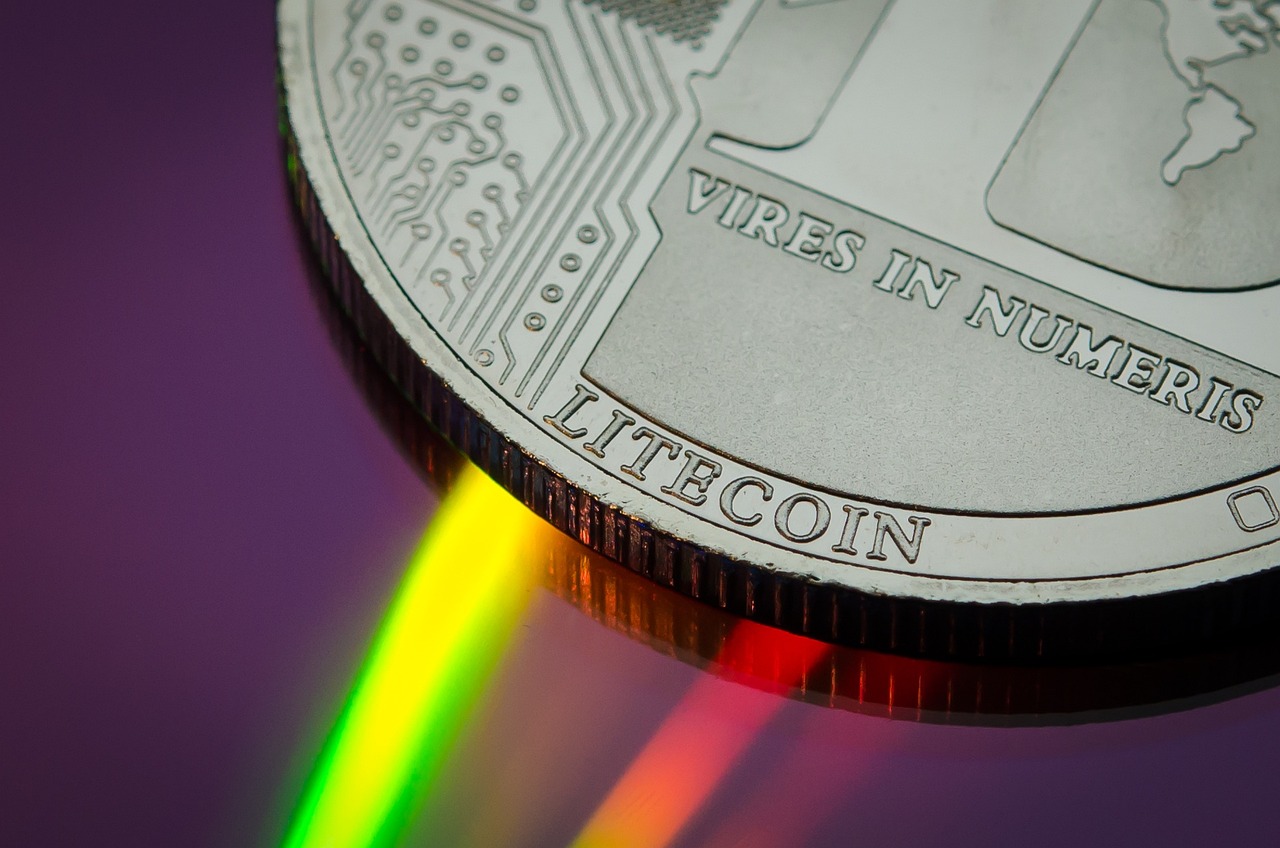
[3.1. Best Software Wallets for 2025]
As we dive into the world of software wallets for 2025, it’s essential to understand that these digital solutions offer a blend of convenience and security for managing your cryptocurrencies. Software wallets come in various forms, including desktop applications, mobile apps, and even browser extensions, making them accessible for everyone, whether you’re a seasoned trader or a curious newcomer.
Among the top contenders for 2025, Exodus stands out due to its user-friendly interface and robust security features. This wallet supports a wide range of cryptocurrencies, allowing users to manage multiple assets seamlessly. The built-in exchange feature lets you swap cryptocurrencies directly within the app, making it a favorite for those who like to trade on the go.
Another notable mention is Atomic Wallet, which not only supports over 500 cryptocurrencies but also allows users to buy crypto with credit cards. Its decentralized nature ensures that you have full control over your private keys, which is a significant plus in today’s security-conscious environment. Plus, Atomic Wallet provides an easy-to-navigate interface, making it perfect for beginners.
For those who prioritize security above all, Ledger Live is a must-try. While it is primarily known as a companion app for Ledger hardware wallets, it also functions as a software wallet. Ledger Live provides a secure environment for managing your crypto assets, ensuring that your private keys never leave the hardware device. This hybrid approach offers peace of mind, especially for those holding significant amounts of cryptocurrencies.
Let’s not forget about Trust Wallet, which has gained immense popularity among mobile users. Owned by Binance, Trust Wallet supports a vast array of tokens and integrates seamlessly with decentralized applications (dApps). Its multi-currency support and user-friendly interface make it a go-to choice for mobile cryptocurrency enthusiasts.
To help you compare these wallets, here’s a quick overview of their key features:
| Wallet | Supported Cryptocurrencies | Key Features | Platform |
|---|---|---|---|
| Exodus | Over 100 | User-friendly, Built-in exchange | Desktop, Mobile |
| Atomic Wallet | Over 500 | Decentralized, Credit card purchases | Desktop, Mobile |
| Ledger Live | Varies (depends on hardware) | High security, Hardware integration | Desktop, Mobile |
| Trust Wallet | Over 160k tokens | Supports dApps, Multi-currency | Mobile |
When selecting a software wallet, consider factors like security, ease of use, and the range of supported cryptocurrencies. Each of these wallets has unique features that cater to different user needs, whether you’re looking for a simple interface or advanced trading capabilities. Remember, the right wallet can make all the difference in managing your digital assets efficiently and securely.
- What is a software wallet? A software wallet is a digital application that allows users to store, send, and receive cryptocurrencies. They can be accessed on various devices, including computers and smartphones.
- Are software wallets secure? While software wallets offer convenience, they are generally less secure than hardware wallets. However, many software wallets implement strong security measures, such as encryption and two-factor authentication.
- Can I use multiple software wallets? Yes, many users opt to use multiple software wallets to diversify their holdings and enhance security. Just ensure you keep track of your private keys and recovery phrases.
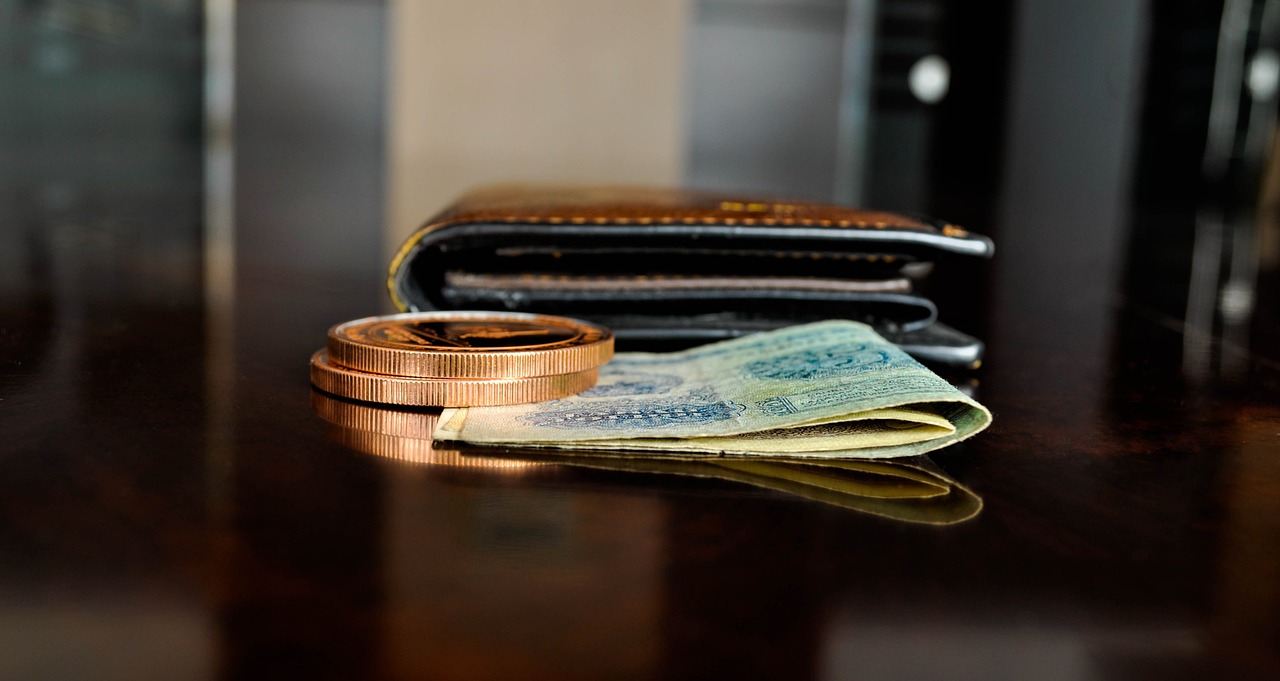
[3.2. Using Software Wallets Safely]
When it comes to managing your cryptocurrencies, software wallets offer a blend of convenience and accessibility that many users find appealing. However, with great convenience comes great responsibility. To keep your digital assets safe while using software wallets, it's essential to adopt some best practices. First and foremost, always ensure that you download your wallet software from the official website or trusted app stores. This simple step can help you avoid malicious software that could compromise your funds.
Another critical aspect of using software wallets safely is securing your private keys. Think of your private key as the key to your digital safe; if someone gets hold of it, they can access your assets without your permission. Therefore, it’s crucial to keep your private keys confidential and never share them with anyone. Some wallets offer features like encrypted backups and seed phrases for recovery. Make sure you understand how these work and use them to your advantage.
One effective practice is to enable two-factor authentication (2FA) whenever possible. This adds an additional layer of security by requiring you to verify your identity through a secondary device or application. Imagine it as having a double lock on your door; even if someone has your key, they still can’t get in without the second form of verification. This is particularly important for wallets that allow online access.
Moreover, be cautious about the networks you use when accessing your software wallet. Avoid public Wi-Fi networks, as they can expose you to potential hacking attempts. Instead, opt for secure, private connections whenever possible. If you must use public Wi-Fi, consider using a Virtual Private Network (VPN) to encrypt your internet traffic. This adds another layer of protection against prying eyes.
Lastly, keep your software wallet updated. Developers regularly release updates to patch security vulnerabilities and improve functionality. By keeping your wallet up to date, you reduce the risk of falling victim to exploits that target outdated software. Remember, just like you wouldn’t ignore a warning light on your car’s dashboard, don’t ignore update notifications on your wallet.
In summary, using software wallets safely requires a proactive approach. By following these guidelines, you can significantly reduce the risks associated with managing your cryptocurrencies. Always stay informed about the latest security practices, and don’t hesitate to take action to protect your digital assets.
Q: What is a software wallet?
A software wallet is a digital application that allows users to store, send, and receive cryptocurrencies. They can be installed on computers or mobile devices.
Q: How do I secure my software wallet?
To secure your software wallet, use strong passwords, enable two-factor authentication, keep your software updated, and never share your private keys.
Q: Is it safe to use public Wi-Fi for accessing my software wallet?
It is not recommended to use public Wi-Fi for accessing your software wallet due to potential security risks. If you must, use a VPN for added security.
Q: What should I do if I lose my private key?
If you lose your private key, you may lose access to your funds permanently. Always back up your wallet and keep your recovery phrases secure.

[4. Mobile Wallets]
In today's fast-paced world, mobile wallets have emerged as a game-changer for cryptocurrency enthusiasts. Imagine having your entire digital asset portfolio right in your pocket, accessible at a moment's notice. That's the beauty of mobile wallets! These applications allow you to manage your cryptocurrencies seamlessly from your smartphone, making transactions as easy as sending a text message. But it's not all about convenience; security is a major concern too. So, let’s dive into what makes mobile wallets so appealing and what you need to keep in mind when using them.
Mobile wallets come in various forms, each offering unique features and benefits. Some are designed for specific cryptocurrencies, while others support multiple coins, giving you flexibility in managing your digital assets. The convenience of mobile wallets is undeniable—they allow you to send, receive, and store cryptocurrencies on the go. However, just like any tool, they come with their own set of challenges. For instance, mobile wallets are often more vulnerable to hacking than their hardware counterparts. Therefore, it’s crucial to choose a wallet that prioritizes security without sacrificing usability.
When considering which mobile wallet to use, you should look for a few key features:
- User-Friendly Interface: A clean, intuitive design makes it easier for you to navigate your wallet and execute transactions.
- Security Measures: Look for features like biometric authentication, encryption, and backup options to safeguard your funds.
- Supported Cryptocurrencies: Ensure that the wallet supports the cryptocurrencies you plan to hold or trade.
- Transaction Fees: Different wallets have varying fee structures, so it's wise to choose one that aligns with your budget.
Some of the leading mobile wallets in 2025 are likely to include popular options like Trust Wallet, Coinbase Wallet, and Exodus. Each of these wallets offers a mix of security, usability, and support for a wide range of cryptocurrencies. For example, Trust Wallet is known for its strong security features and ease of use, making it a favorite among newcomers and seasoned investors alike.
However, while mobile wallets offer tremendous convenience, they also pose certain risks. One of the most common threats is phishing attacks, where malicious actors attempt to steal your login credentials. To mitigate this risk, always download wallets from reputable sources and be cautious of unsolicited messages or emails. Additionally, enabling two-factor authentication (2FA) can add an extra layer of security to your mobile wallet.
As we look towards the future, the landscape of mobile wallets is expected to evolve significantly. With advancements in technology, we can anticipate enhanced security features, better user interfaces, and integration with other financial services. This evolution will not only improve the user experience but also foster greater trust in mobile wallets as a secure method for managing cryptocurrencies. So, whether you're a seasoned trader or a newbie exploring the world of digital currencies, mobile wallets are undoubtedly a vital tool in your cryptocurrency journey.
Q: Are mobile wallets safe to use?
A: While mobile wallets offer convenience, they can be vulnerable to hacking. It’s essential to choose a wallet with strong security features and to practice safe usage, such as enabling 2FA and avoiding public Wi-Fi for transactions.
Q: Can I use multiple mobile wallets?
A: Absolutely! Many crypto users prefer to use multiple wallets for different purposes—one for daily transactions and another for long-term storage. Just ensure that you manage your private keys securely.
Q: What should I do if I lose my phone?
A: If you lose your phone, immediately access your wallet from another device and change your passwords. Most wallets have backup and recovery options, so ensure you have these set up beforehand.
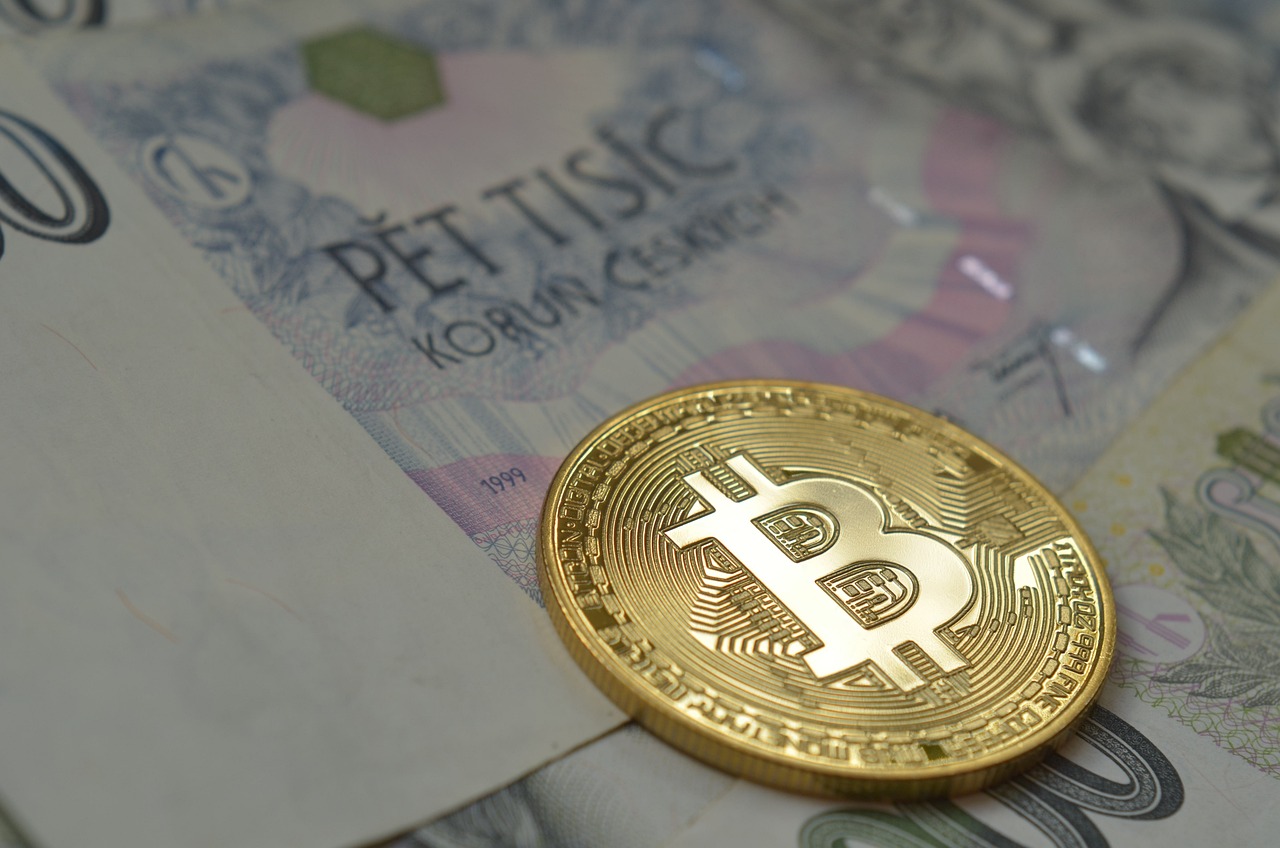
[4.1. Leading Mobile Wallets]
In the fast-paced world of cryptocurrency, having a reliable and user-friendly mobile wallet is essential for managing your digital assets on the go. As we look ahead to 2025, several mobile wallets stand out for their features, security, and overall user experience. These wallets not only allow you to store your cryptocurrencies but also enable seamless transactions, making them ideal for everyday use.
One of the top contenders in the mobile wallet space is Trust Wallet. This wallet, which is officially affiliated with Binance, offers a comprehensive suite of features, including support for numerous cryptocurrencies and a built-in decentralized exchange. Users appreciate its intuitive interface and the ability to manage multiple assets all in one place. Additionally, Trust Wallet is known for its strong security measures, including private key storage on the user's device, ensuring that your assets remain safe from potential breaches.
Another popular choice is Exodus Wallet. This wallet is particularly praised for its stunning design and user-friendly interface. Exodus supports a wide range of cryptocurrencies and provides an integrated exchange feature that allows users to swap assets without leaving the app. What sets Exodus apart is its focus on providing users with complete control over their private keys, which enhances security and gives users peace of mind. Furthermore, Exodus offers a desktop version, allowing for a seamless transition between mobile and desktop management.
For those who prioritize security, Atomic Wallet is a fantastic option. It is a non-custodial wallet, meaning that users retain control over their private keys. Atomic Wallet supports over 500 cryptocurrencies and features an atomic swap function, allowing users to exchange assets directly from their wallet without the need for a third-party exchange. The wallet's strong encryption and backup options ensure that your funds are secure, making it a favorite among security-conscious users.
When considering mobile wallets, it's also important to look at Coinomi. This wallet excels in supporting a vast array of cryptocurrencies, making it a versatile choice for users with diverse portfolios. Coinomi incorporates built-in exchange services, allowing for easy trading between different assets. Additionally, it offers robust security features, including a recovery seed phrase and biometric authentication, which add layers of protection to your funds.
Lastly, we can't overlook Mycelium, a wallet that has been around for quite some time and has built a solid reputation in the crypto community. Mycelium is particularly well-suited for Bitcoin users, offering advanced features such as local trading and hardware wallet support. Its focus on privacy and security, combined with a user-friendly interface, makes it a top choice for anyone looking to manage their Bitcoin on mobile.
In summary, the leading mobile wallets for 2025 are not only about storing cryptocurrencies; they provide a comprehensive platform for managing your digital assets securely and efficiently. Whether you prioritize user experience, security, or the ability to handle multiple cryptocurrencies, there’s a wallet out there that meets your needs. As you explore these options, consider what features are most important to you and how each wallet aligns with your cryptocurrency management goals.
- What is a mobile wallet? A mobile wallet is an application that allows users to store, send, and receive cryptocurrencies using their smartphones.
- Are mobile wallets safe? Yes, mobile wallets can be safe, especially those that offer strong security features like private key control, two-factor authentication, and backup options.
- Can I use multiple mobile wallets? Absolutely! Many users choose to use multiple wallets to diversify their holdings and enhance security.
- How do I choose the best mobile wallet? Consider factors such as security features, user interface, supported cryptocurrencies, and any additional functionalities like built-in exchanges.
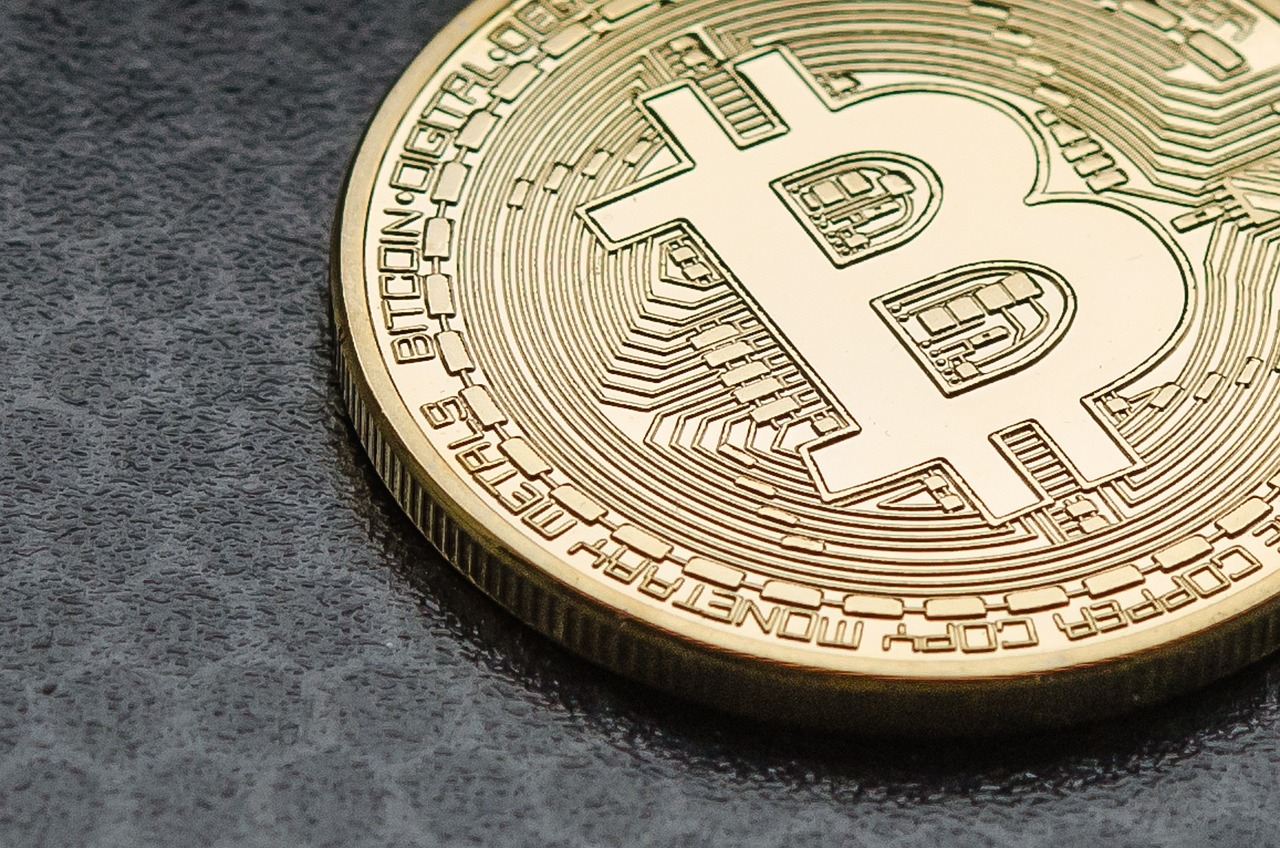
[4.2. Security Tips for Mobile Wallets]
When it comes to managing your cryptocurrencies on the go, mobile wallets offer incredible convenience. However, with that convenience comes a responsibility to keep your digital assets safe. Just like you wouldn't leave your physical wallet lying around in a public place, you should treat your mobile wallet with the same level of care. Here are some essential security tips to ensure your mobile wallet remains secure:
First and foremost, always enable two-factor authentication (2FA) if your wallet supports it. This adds an extra layer of protection by requiring not just your password, but also a code sent to your phone or email. Think of it as a double lock on your front door—one lock isn't enough!
Next, keep your mobile device's operating system and wallet app updated. Developers frequently release updates that patch security vulnerabilities, and using outdated software can leave you exposed to potential threats. Regular updates are like getting regular check-ups for your health; they help keep everything running smoothly.
Another important tip is to use a strong, unique password for your wallet. Avoid using easily guessable passwords, such as birthdays or common words. Instead, think of a passphrase that combines letters, numbers, and symbols. A strong password is your first line of defense against unauthorized access.
Additionally, be cautious when connecting to public Wi-Fi networks. Public networks can be breeding grounds for hackers looking to intercept your data. If you must use public Wi-Fi, consider using a Virtual Private Network (VPN) to encrypt your connection. Imagine it as a secure tunnel that keeps your data safe from prying eyes.
It’s also wise to back up your wallet regularly. Most mobile wallets offer options to create a backup of your private keys or recovery phrases. Store these backups in a secure location, separate from your phone, to ensure you can recover your funds in case of theft or loss. Think of it as having a spare key hidden away for emergencies.
Lastly, always be aware of phishing attempts. Scammers often create fake websites or apps that look like legitimate wallets to trick you into giving up your credentials. Always double-check URLs and download apps only from official app stores. It's like checking the ingredients before eating a dish—you want to make sure you're not consuming anything harmful!
By following these tips, you can significantly enhance the security of your mobile wallet and enjoy the convenience of managing your cryptocurrencies on the go without worrying about potential risks. Remember, a little caution goes a long way in the digital world!
Q: What is a mobile wallet?
A mobile wallet is an application that allows users to store, send, and receive cryptocurrencies directly from their smartphones. It provides quick access to your digital assets, making transactions easy and convenient.
Q: Are mobile wallets safe?
While mobile wallets can be secure, their safety largely depends on the user's practices. Following best security measures, such as enabling 2FA and using strong passwords, can help protect your assets.
Q: Can I recover my funds if I lose my mobile wallet?
Most mobile wallets provide backup options, such as recovery phrases. If you have backed up your wallet correctly, you can recover your funds on a new device.
Q: Should I use a mobile wallet for large amounts of cryptocurrency?
For large amounts, it's generally safer to use hardware wallets or other more secure storage options. Mobile wallets are best suited for smaller, everyday transactions.
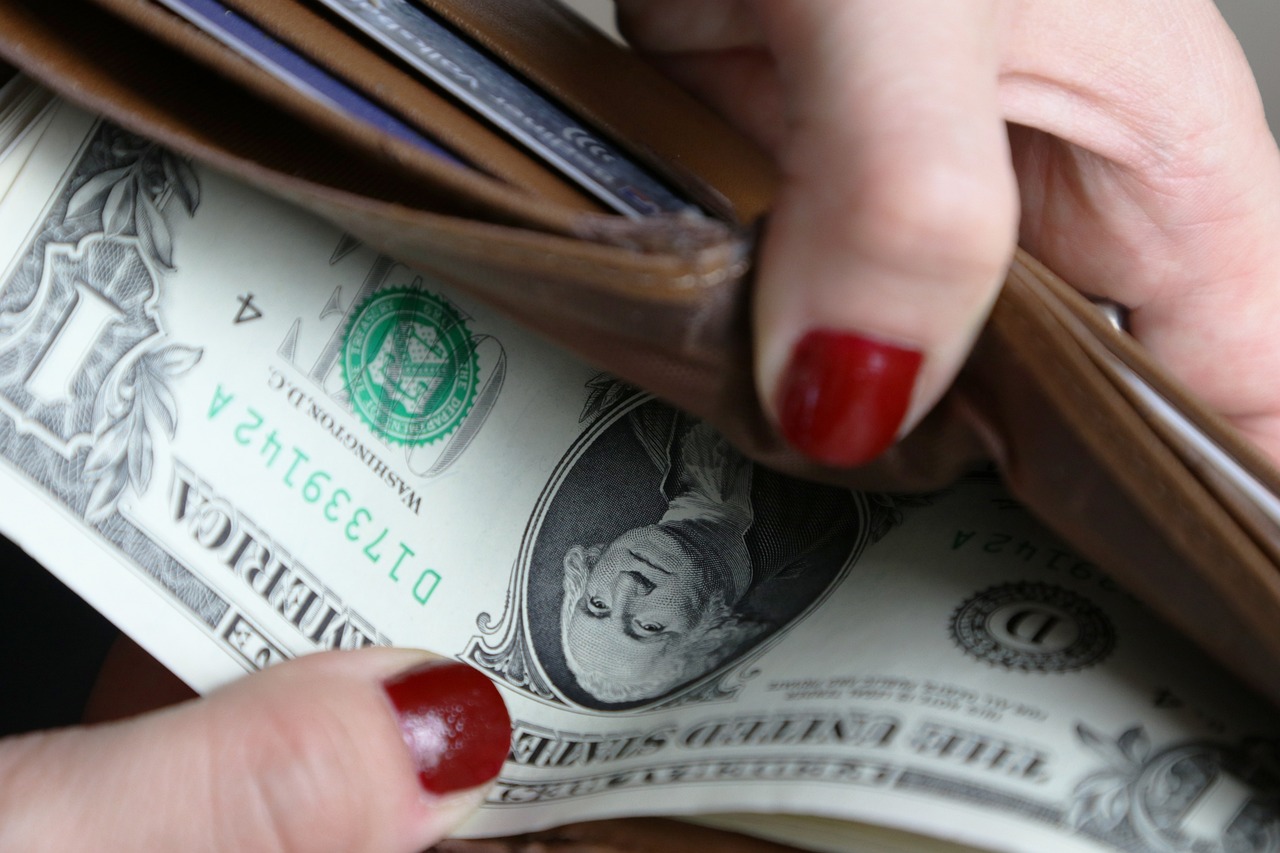
[5. Web Wallets]
Web wallets have become increasingly popular due to their convenience and ease of access. Unlike hardware wallets that require physical devices, web wallets allow users to manage their cryptocurrencies directly through a web browser. This means you can access your digital assets from anywhere, as long as you have an internet connection. However, this convenience comes with its own set of risks that users should be aware of.
One of the primary advantages of web wallets is their user-friendly interface, making them ideal for beginners who may not be familiar with the intricacies of cryptocurrency management. Most web wallets offer seamless integration with various cryptocurrencies, allowing users to send, receive, and exchange their assets without the need for complex procedures. However, the convenience of web wallets also makes them a target for cybercriminals, which is why understanding their risks is crucial.
When choosing a reliable web wallet, consider the following factors:
- Security Features: Look for wallets that offer robust security measures such as encryption, two-factor authentication, and regular security audits.
- User Reviews: Check user feedback to gauge the wallet's reliability and customer support.
- Supported Cryptocurrencies: Ensure the wallet supports the cryptocurrencies you intend to manage.
In terms of risks, web wallets can be vulnerable to phishing attacks, hacking attempts, and other online threats. It's essential to be cautious and take proactive measures to protect your assets. For instance, always ensure that you are accessing your wallet through a secure connection, and never share your login credentials with anyone. Additionally, consider using a hardware wallet for storing larger amounts of cryptocurrency, while keeping smaller amounts in a web wallet for everyday transactions.
In summary, web wallets offer a blend of convenience and accessibility that can be particularly appealing for those new to the cryptocurrency space. However, with great convenience comes great responsibility. By understanding the risks and implementing best practices, you can effectively manage your digital assets while minimizing potential threats. The key is to stay informed and vigilant in this rapidly evolving landscape.
Q1: Are web wallets safe to use?
A1: While web wallets offer convenience, they can be vulnerable to hacking and phishing attacks. It's important to choose a reputable wallet with strong security features and to practice safe browsing habits.
Q2: Can I store all my cryptocurrencies in a web wallet?
A2: Most web wallets support a variety of cryptocurrencies, but it's advisable to check the specific coins supported by the wallet you choose. For larger holdings, consider using a hardware wallet for added security.
Q3: How do I recover my web wallet if I forget my password?
A3: Most web wallets have a recovery process in place, usually involving recovery phrases or email verification. Always ensure that you keep your recovery information secure and accessible.
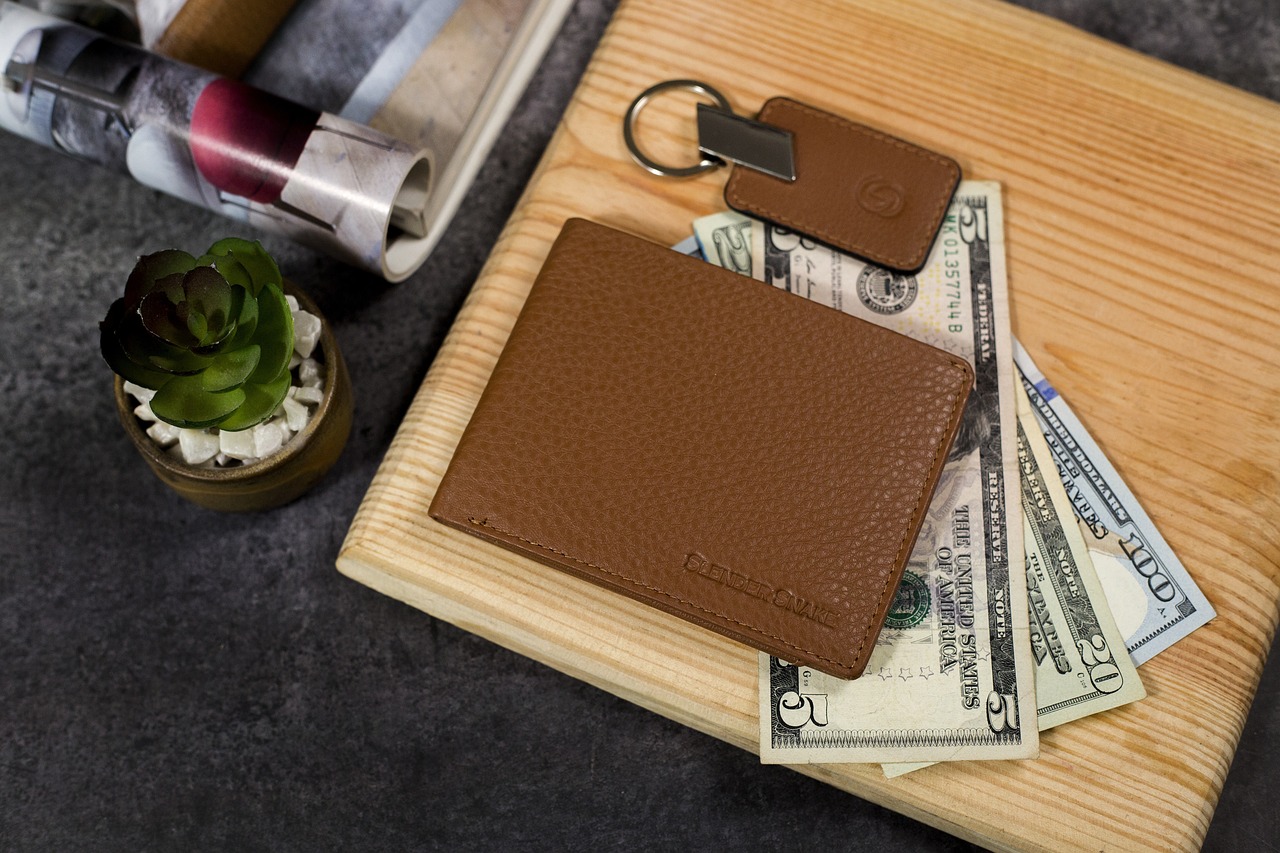
[5.1. Recommended Web Wallets]
When it comes to managing your cryptocurrencies through a web wallet, you want to ensure that you're using a platform that's not only user-friendly but also secure. In 2025, several web wallets stand out for their features, security protocols, and overall user experience. Let's dive into some of the top recommended web wallets that are making waves this year.
First up is Coinbase Wallet. Known for its intuitive interface, Coinbase Wallet allows users to easily store and manage a variety of cryptocurrencies. One of its standout features is the ability to integrate with decentralized applications (dApps), giving users access to a broader range of services. Additionally, Coinbase emphasizes security with two-factor authentication and regular security audits, making it a reliable choice for both beginners and experienced users.
Another strong contender is Binance Wallet. As a part of the larger Binance ecosystem, this wallet provides seamless integration with the Binance exchange. Users can trade directly from their wallet, which is a huge time-saver. Binance Wallet also boasts a robust security framework, including withdrawal whitelist features and advanced encryption methods. Its versatility and security make it a favorite among crypto enthusiasts.
For those who prioritize privacy, Blockchain.com Wallet is a fantastic option. This wallet allows users to maintain full control over their private keys, ensuring that their funds are secure. Blockchain.com Wallet also provides a user-friendly interface and supports a wide range of cryptocurrencies. Plus, it offers built-in exchange features, allowing users to swap assets directly within the wallet.
Lastly, we have Kraken Wallet. Known for its strong compliance and security measures, Kraken Wallet is perfect for users who want peace of mind. With features like two-factor authentication and a focus on regulatory compliance, Kraken stands out in the crowded web wallet market. Its user interface is straightforward, making it easy for anyone to navigate their crypto assets.
To summarize, here’s a quick comparison of the recommended web wallets:
| Wallet Name | Key Features | Security Measures |
|---|---|---|
| Coinbase Wallet | Intuitive interface, dApp integration | Two-factor authentication, regular audits |
| Binance Wallet | Exchange integration, trading from wallet | Withdrawal whitelist, advanced encryption |
| Blockchain.com Wallet | Full control over private keys, built-in exchange | User-controlled private keys |
| Kraken Wallet | Strong compliance, user-friendly | Two-factor authentication, regulatory compliance |
Choosing the right web wallet can significantly impact your cryptocurrency experience. Each of these wallets offers unique features and security measures that cater to different user needs. Whether you're a beginner looking for ease of use or a seasoned trader needing advanced functionalities, these wallets provide solid options in 2025.
Q: What is a web wallet?
A web wallet is an online platform that allows users to store, send, and receive cryptocurrencies through a web browser. They are convenient and accessible from any device with internet connectivity.
Q: Are web wallets safe?
While web wallets can be convenient, they are generally considered less secure than hardware wallets due to their online nature. However, many reputable web wallets implement strong security measures to protect users' assets.
Q: Can I use multiple web wallets?
Yes, you can use multiple web wallets to manage your cryptocurrencies. This can help diversify your security options and provide access to different features offered by various wallets.
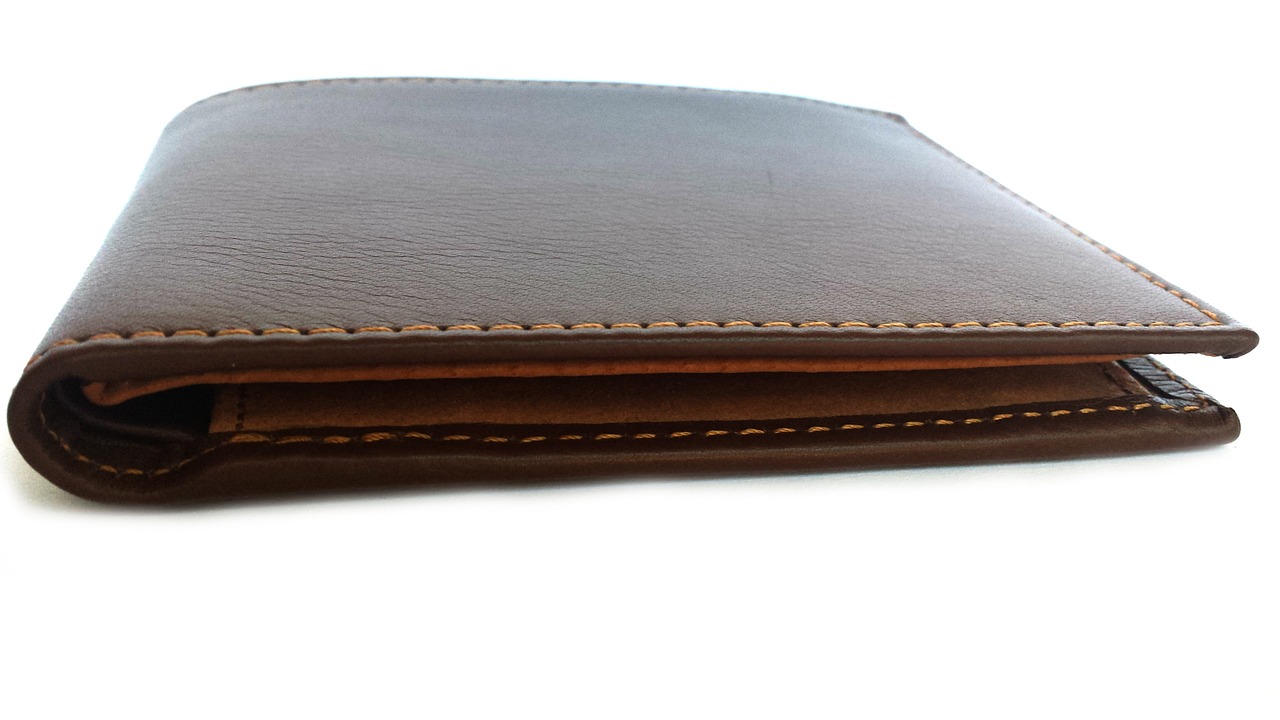
[5.2. Risks of Using Web Wallets]
When it comes to managing your cryptocurrency, web wallets offer a level of convenience that’s hard to beat. However, this convenience comes with its own set of risks that every user should be aware of. One of the primary concerns is security vulnerabilities. Web wallets are often targeted by hackers due to their online nature, making them susceptible to phishing attacks, malware, and other cyber threats. Imagine leaving your front door wide open; that’s essentially what using a web wallet can feel like if you don’t take the necessary precautions.
Another significant risk is the loss of access. Unlike hardware wallets, where you control your private keys, web wallets often store your keys on their servers. If the wallet provider experiences downtime, gets hacked, or goes out of business, you might find yourself cut off from your assets. This situation can be likened to handing your house keys to a friend who then loses them; you’re left in a lurch, unable to access your own home—or in this case, your funds.
Moreover, the lack of regulation in the cryptocurrency space means that web wallet providers are not always held accountable for their security measures. If you find yourself a victim of fraud or theft, you may have little recourse to recover your lost assets. This is why it’s crucial to choose a reputable provider with a solid track record. When selecting a web wallet, consider the following factors:
- Reputation: Research user reviews and ratings to gauge the provider's reliability.
- Security Features: Look for wallets that offer two-factor authentication and encryption.
- Customer Support: A responsive customer support team can be a lifesaver in times of trouble.
Lastly, it’s important to remember that even the most secure web wallets are not foolproof. Users must remain vigilant and practice good security hygiene. This includes using strong, unique passwords, enabling two-factor authentication, and regularly monitoring your accounts for any suspicious activity. By being proactive, you can significantly reduce the risks associated with web wallets and better protect your digital assets.
In summary, while web wallets can be a convenient option for managing cryptocurrencies, they come with inherent risks that must be carefully considered. By understanding these risks and taking appropriate precautions, you can enjoy the benefits of web wallets while minimizing potential downsides.
Q1: Are web wallets safe to use?
A1: Web wallets can be safe if you choose a reputable provider and implement strong security measures, such as two-factor authentication.
Q2: What should I do if I lose access to my web wallet?
A2: If you lose access, try to use any recovery options provided by the wallet service. If that fails, you may have limited recourse, so always back up your recovery phrases and passwords.
Q3: Can I recover stolen funds from a web wallet?
A3: Unfortunately, recovering stolen funds is often difficult, as many web wallets do not have insurance or guarantees against theft.
Q4: How can I enhance the security of my web wallet?
A4: Use a strong password, enable two-factor authentication, and be cautious of phishing attempts. Regularly update your software and monitor your account activity.
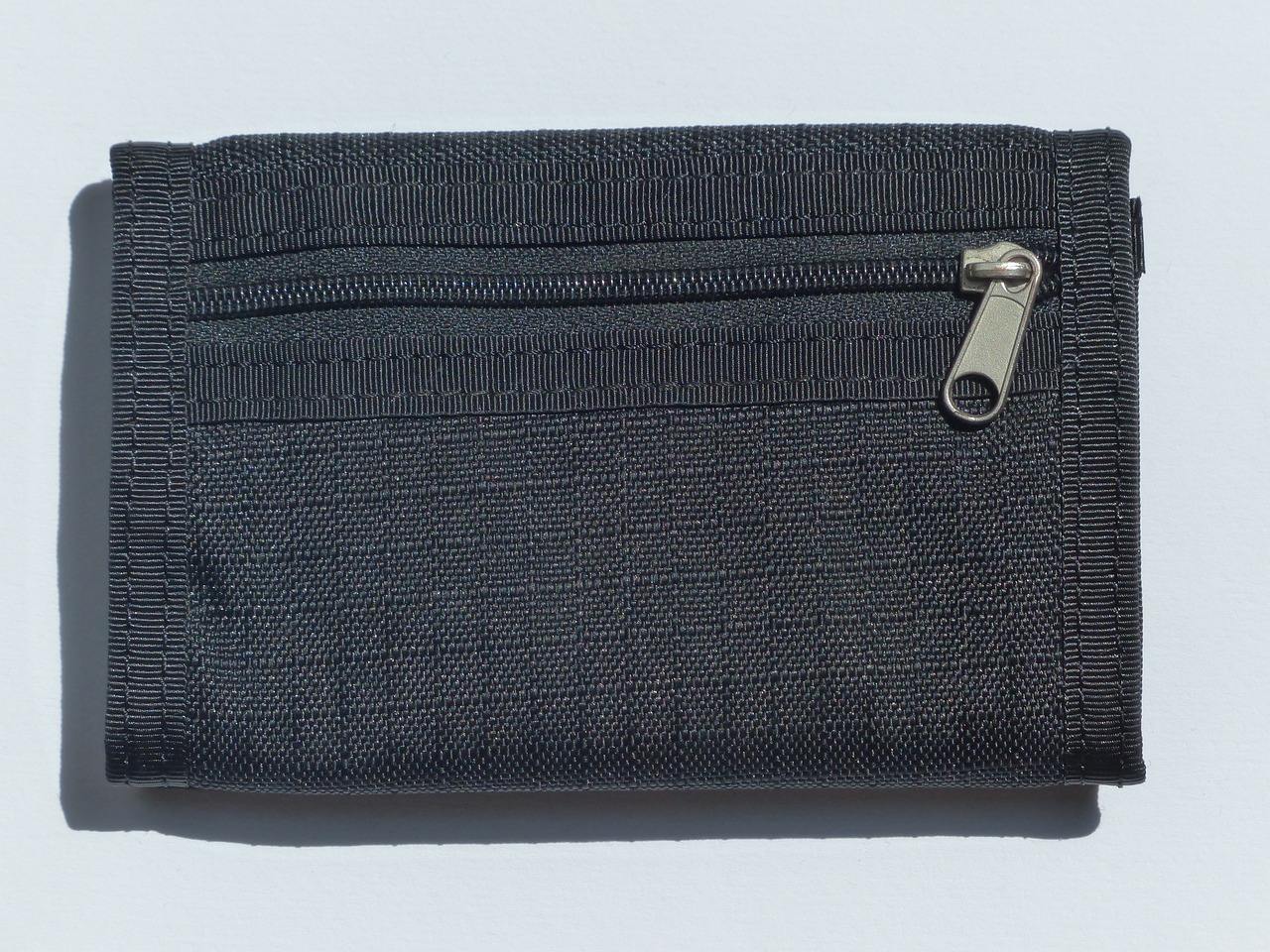
[6. Multi-Currency Wallets]
In the ever-evolving world of cryptocurrency, multi-currency wallets have emerged as a game-changer for users who own a diverse range of digital assets. These wallets are designed to support multiple cryptocurrencies, allowing users to manage all their holdings in one convenient place. Imagine having a single wallet that can hold Bitcoin, Ethereum, Litecoin, and many others—this is the beauty of multi-currency wallets. Not only do they simplify the management of various cryptocurrencies, but they also save you the hassle of juggling multiple wallets, each with its own set of security protocols and recovery phrases.
One of the primary benefits of using a multi-currency wallet is convenience. Instead of switching between different platforms to check balances or make transactions, you can do everything from one interface. This is especially useful for those who actively trade or invest in multiple cryptocurrencies. Additionally, many of these wallets come with advanced features such as built-in exchange functionalities, allowing users to swap between currencies without leaving the wallet. This seamless integration can save time and reduce transaction costs.
Another significant advantage is cost-effectiveness. Many multi-currency wallets offer lower transaction fees compared to using multiple wallets or exchanges. By consolidating your assets, you can minimize the costs associated with transferring funds between wallets or converting currencies. Furthermore, some wallets even provide rewards and incentives for holding certain cryptocurrencies, adding to your potential earnings.
However, not all multi-currency wallets are created equal. When selecting one, it's essential to consider factors such as security, user experience, and compatibility with the cryptocurrencies you intend to hold. Look for wallets that offer robust security features, including two-factor authentication, encryption, and backup options. A user-friendly interface is also crucial, especially for newcomers who may find navigating complex platforms daunting.
| Wallet Name | Supported Currencies | Security Features | User Rating |
|---|---|---|---|
| Exodus | Bitcoin, Ethereum, Litecoin, and more | Private keys stored locally, backup options | 4.7/5 |
| Atomic Wallet | Over 500 coins and tokens | Decentralized, private keys stored locally | 4.6/5 |
| Coinomi | Over 1,770 coins | Seed phrase backup, strong encryption | 4.5/5 |
As we look ahead to 2025, the demand for multi-currency wallets is expected to grow. With the increasing number of cryptocurrencies entering the market, users will likely seek wallets that can accommodate their expanding portfolios. This trend signifies the importance of selecting a wallet that not only meets your current needs but also has the potential to adapt as the cryptocurrency landscape evolves.
In conclusion, multi-currency wallets offer a fantastic solution for anyone looking to manage multiple cryptocurrencies seamlessly. By choosing a wallet that prioritizes security, usability, and functionality, you can ensure that your digital assets are well-protected and easily accessible. As you navigate this exciting world of digital currencies, remember that the right wallet can make all the difference in your cryptocurrency journey.
- What is a multi-currency wallet? A multi-currency wallet is a type of cryptocurrency wallet that allows users to store and manage multiple cryptocurrencies in one place.
- Are multi-currency wallets safe? Yes, many multi-currency wallets offer robust security features, but it's essential to choose a reputable wallet and follow best practices for securing your assets.
- Can I exchange cryptocurrencies within a multi-currency wallet? Many multi-currency wallets come with built-in exchange features, enabling users to swap between different cryptocurrencies without leaving the wallet.
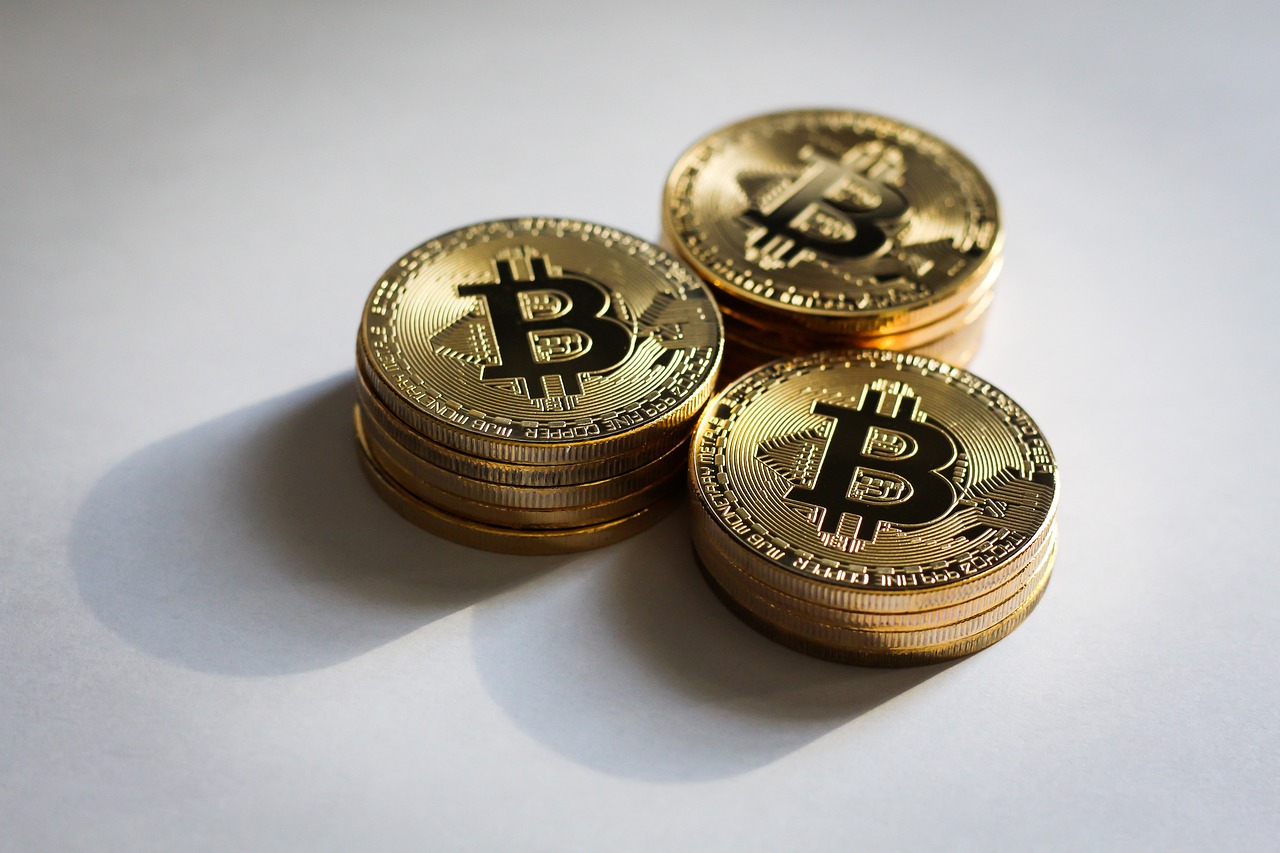
[6.1. Best Multi-Currency Wallets]
In the ever-evolving world of cryptocurrencies, having a reliable multi-currency wallet is essential for anyone looking to manage a diverse portfolio. These wallets allow users to store, send, and receive various cryptocurrencies all in one place, making them incredibly convenient. As we look ahead to 2025, several wallets stand out for their features, security, and user experience. Let's dive into some of the top contenders.
One of the most talked-about multi-currency wallets is Exodus. Known for its sleek design and user-friendly interface, Exodus supports over 100 cryptocurrencies. What sets it apart is its built-in exchange feature, allowing users to swap assets without leaving the wallet. Additionally, Exodus is available on both desktop and mobile platforms, making it accessible for users on the go.
Another strong competitor is Atomic Wallet. This wallet also supports a wide range of cryptocurrencies and offers a decentralized exchange within the app. Atomic Wallet prioritizes user control, allowing you to manage your private keys and ensuring that you are the sole custodian of your assets. The wallet's intuitive design and ease of use make it a popular choice among both novice and experienced users.
For those who prioritize security, Ledger Live is a must-mention. While Ledger is primarily known for its hardware wallets, the Ledger Live application allows users to manage multiple currencies securely. By pairing the app with a Ledger device, users can enjoy enhanced security features, including two-factor authentication and recovery options, making it a top choice for serious investors.
In addition to these, Trust Wallet has gained popularity, especially among mobile users. As Binance's official wallet, Trust Wallet supports a vast array of cryptocurrencies and offers features like staking and decentralized finance (DeFi) access. Its commitment to user privacy and security, coupled with a straightforward interface, makes it an attractive option for those looking to manage their digital assets on their smartphones.
To summarize, here’s a quick comparison of these top multi-currency wallets:
| Wallet Name | Supported Cryptocurrencies | Key Features | Platform |
|---|---|---|---|
| Exodus | 100+ | Built-in exchange, user-friendly interface | Desktop & Mobile |
| Atomic Wallet | 500+ | Decentralized exchange, user-controlled keys | Desktop & Mobile |
| Ledger Live | 1500+ | Enhanced security with hardware integration | Desktop & Mobile |
| Trust Wallet | 160k+ | Staking, DeFi access, privacy-focused | Mobile |
Choosing the right multi-currency wallet depends on your specific needs, such as the number of cryptocurrencies you plan to manage, your security preferences, and whether you prefer desktop or mobile access. Each of these wallets offers unique features that cater to different user preferences, making them excellent choices as we head into 2025.
As you explore these options, remember that security should always be a priority. Ensure that whatever wallet you choose has robust security features, such as two-factor authentication and backup options, to protect your digital assets. With the right multi-currency wallet, you can confidently navigate the exciting world of cryptocurrencies.
- What is a multi-currency wallet? A multi-currency wallet is a digital wallet that allows users to store and manage multiple types of cryptocurrencies in one place.
- Are multi-currency wallets safe? Yes, most reputable multi-currency wallets offer strong security features, but it's essential to choose a wallet with good security protocols and to follow best practices.
- Can I use a multi-currency wallet for trading? While some multi-currency wallets have built-in exchange features, others may not support trading directly. It's best to check the wallet's specifications.
- How do I choose the best multi-currency wallet for me? Consider factors such as the number of supported cryptocurrencies, security features, ease of use, and whether you prefer a mobile or desktop platform.
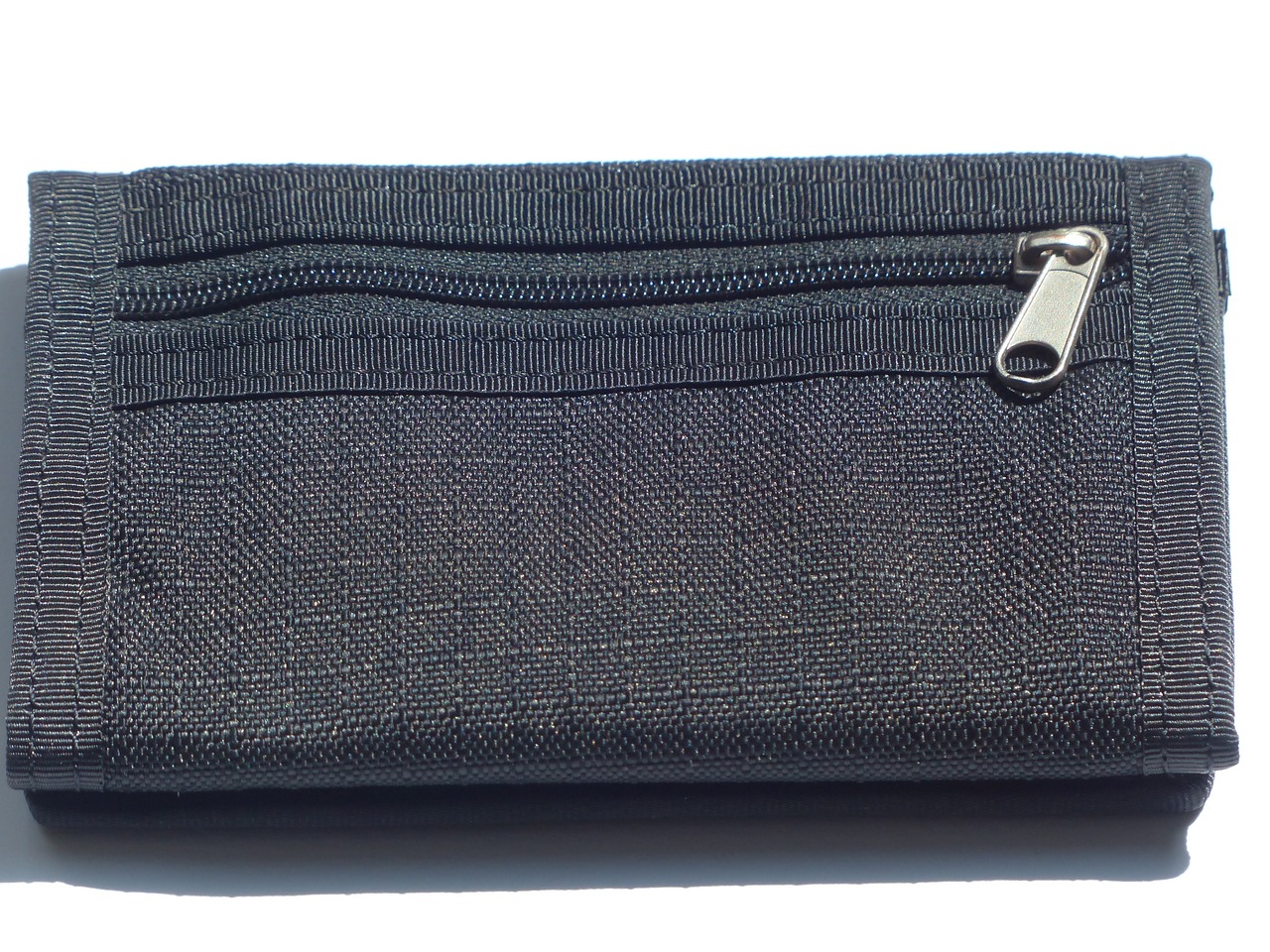
[6.2. Advantages of Multi-Currency Wallets]
In today's rapidly evolving cryptocurrency landscape, the use of multi-currency wallets has become increasingly popular among investors and crypto enthusiasts alike. These wallets stand out for their ability to support a diverse range of digital currencies, offering numerous benefits that cater to the needs of modern users. One of the most significant advantages is convenience. Imagine having all your cryptocurrencies stored in one place, eliminating the hassle of managing multiple wallets for different assets. This streamlined approach not only saves time but also simplifies the process of buying, selling, and trading various cryptocurrencies.
Furthermore, multi-currency wallets often come equipped with user-friendly interfaces that make navigation a breeze. Users can easily switch between currencies, view their balances, and execute transactions without the confusion that can arise from using multiple wallets. This ease of use is particularly beneficial for newcomers to the crypto space, who may feel overwhelmed by the complexities of different wallet types.
Another key advantage is cost-effectiveness. Many multi-currency wallets offer lower transaction fees compared to single-currency wallets, especially when it comes to exchanging one cryptocurrency for another. This can lead to significant savings over time, particularly for active traders. Additionally, some wallets provide built-in exchange features, allowing users to trade cryptocurrencies directly within the wallet without needing to transfer funds to external exchanges.
Security is also a paramount concern for cryptocurrency users, and multi-currency wallets typically incorporate robust security measures. These may include encryption technologies, two-factor authentication, and regular software updates to protect against vulnerabilities. By consolidating your assets into one secure wallet, you can better manage and monitor your security practices.
Moreover, multi-currency wallets often support a wide variety of cryptocurrencies, including popular options like Bitcoin, Ethereum, and Litecoin, as well as lesser-known altcoins. This versatility allows users to diversify their portfolios without the need to create multiple wallets. With the growing number of cryptocurrencies available, having a wallet that can accommodate various types of digital assets is a significant advantage.
In summary, the advantages of multi-currency wallets are clear: they provide convenience, cost-effectiveness, enhanced security, and the ability to manage a diverse range of cryptocurrencies all in one place. As the cryptocurrency market continues to grow and evolve, these wallets are likely to become an essential tool for anyone looking to navigate the digital asset landscape effectively.
Q: What is a multi-currency wallet?
A: A multi-currency wallet is a type of cryptocurrency wallet that supports multiple digital currencies, allowing users to store and manage various cryptocurrencies in one location.
Q: Are multi-currency wallets safe?
A: Yes, most multi-currency wallets include robust security features such as encryption and two-factor authentication to help protect users' assets. However, it's essential to choose a reputable wallet and follow best security practices.
Q: Can I exchange cryptocurrencies within a multi-currency wallet?
A: Many multi-currency wallets offer built-in exchange features, enabling users to trade cryptocurrencies directly within the wallet without transferring funds to an external exchange.
Q: How do I choose the best multi-currency wallet for my needs?
A: When selecting a multi-currency wallet, consider factors such as security features, user interface, supported cryptocurrencies, and transaction fees. It's also helpful to read user reviews and compare options before making a decision.

[7. Security Features to Look For]
When it comes to choosing a cryptocurrency wallet, security should be your top priority. With the rise of digital currencies, the number of hacks and scams has also increased, making it essential to select a wallet that prioritizes the safety of your assets. So, what should you look for? Here are some key features that can significantly enhance your wallet's security:
- Two-Factor Authentication (2FA): This feature adds an extra layer of protection by requiring not just a password but also a second form of verification, such as a text message code or an authentication app. This means that even if someone gets hold of your password, they would still need that second factor to access your wallet.
- Backup and Recovery Options: A good wallet will have options to back up your data securely. This might include seed phrases or recovery keys that allow you to restore your wallet if your device is lost or damaged. Make sure you understand how to back up your wallet properly to avoid losing access to your funds.
- Encryption: Look for wallets that offer strong encryption methods to protect your private keys. This is crucial since your private key is what allows you to access and manage your cryptocurrencies. Without proper encryption, your keys could be exposed to potential threats.
- Open Source Code: Wallets with open-source code allow the community to inspect and verify the security measures in place. This transparency can be a significant advantage as it enables users to trust the wallet's security features more readily.
In addition to these features, consider the wallet's history and reputation. Research user reviews and expert opinions to gauge how well a wallet has performed in terms of security in the past. A wallet that has faced multiple security breaches may not be the best choice for safeguarding your digital assets.
Furthermore, it’s wise to stay updated on the latest security trends and vulnerabilities in the cryptocurrency space. The technology is constantly evolving, and what may be considered secure today might not be in the future. Regularly check for updates from your wallet provider and ensure that you are using the latest version of the software.
To summarize, when selecting a cryptocurrency wallet, pay close attention to the following security features:
| Security Feature | Description |
|---|---|
| Two-Factor Authentication | Requires an additional verification step beyond just a password. |
| Backup Options | Allows you to recover your wallet using a seed phrase or recovery key. |
| Encryption | Protects your private keys from unauthorized access. |
| Open Source Code | Enables community verification of the wallet's security measures. |
By focusing on these essential security features, you can significantly reduce the risk of losing your cryptocurrency investments and ensure that your digital assets remain safe and secure.
1. What is two-factor authentication, and why is it important?
Two-factor authentication (2FA) adds an extra layer of security by requiring a second form of identification, making it much harder for unauthorized users to access your wallet.
2. How can I back up my cryptocurrency wallet?
Most wallets provide a seed phrase or recovery key when you set them up. Write this down and store it in a secure location to recover your wallet if necessary.
3. Are hardware wallets safer than software wallets?
Generally, yes. Hardware wallets store your private keys offline, making them less susceptible to hacks compared to software wallets, which are connected to the internet.
4. What should I do if I lose my recovery phrase?
If you lose your recovery phrase, you may lose access to your wallet permanently. It's crucial to keep it in a safe place and consider using multiple backups.
5. How often should I update my wallet software?
You should update your wallet software as soon as updates are available to ensure you have the latest security features and protections.
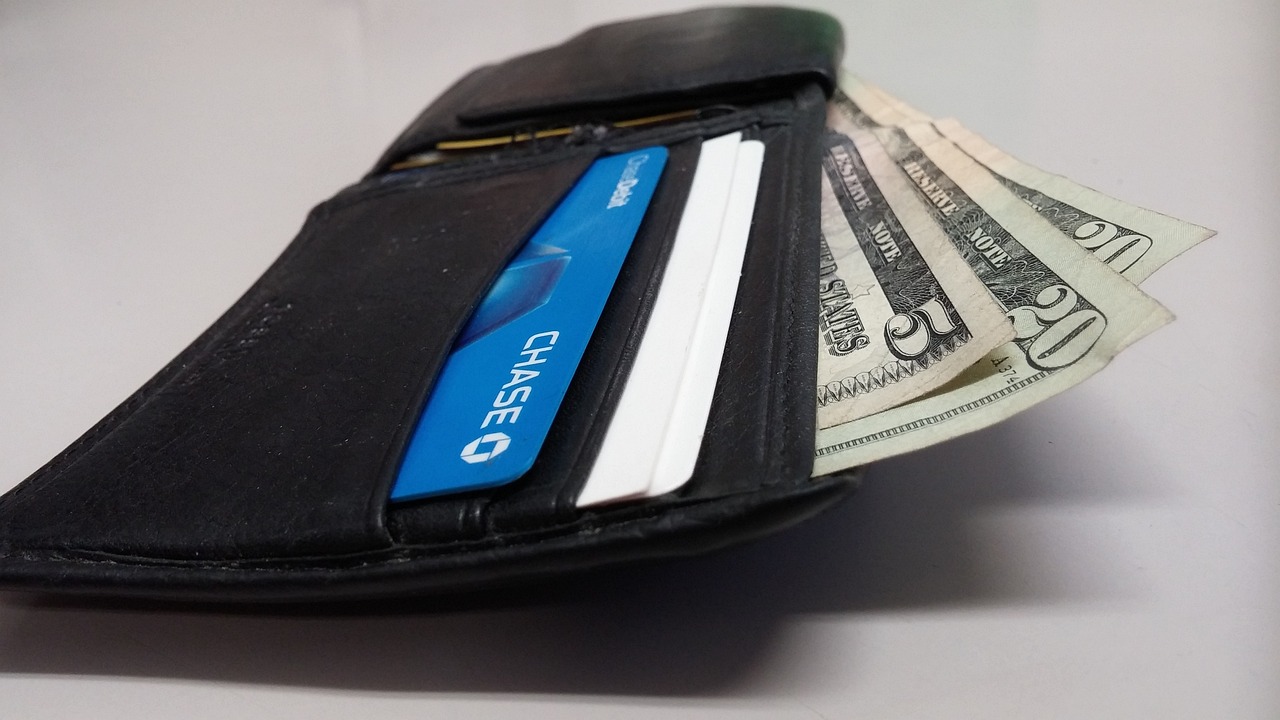
[7.1. Two-Factor Authentication]
When it comes to securing your cryptocurrency wallet, two-factor authentication (2FA) is an absolute game-changer. Imagine this: you’ve got a treasure chest filled with gold coins, and you wouldn’t just leave it unlocked for anyone to stumble upon, would you? Similarly, 2FA adds that extra layer of security to your digital assets, making it significantly harder for unauthorized individuals to access your funds.
So, how does it work? In essence, 2FA requires not only your password but also a second piece of information that only you possess. This could be a code sent to your mobile device, a fingerprint scan, or even a hardware token. By implementing 2FA, you’re essentially saying, “Hey, even if someone gets my password, they still can’t break in without my second key.”
The benefits of using 2FA are numerous, but let’s highlight a few key points:
- Enhanced Security: With 2FA, even if your password is compromised, the additional verification step keeps your wallet safe.
- Peace of Mind: Knowing that your assets are protected with an extra layer of security allows you to relax and enjoy the world of cryptocurrency.
- Deterrence Against Attacks: Most hackers will move on to easier targets if they see that a wallet has 2FA enabled.
It's important to note that not all wallets support 2FA, so when you’re choosing a wallet, make sure to check if this feature is available. Additionally, while 2FA significantly boosts your security, it’s not foolproof. Always combine it with other security measures, such as strong, unique passwords and regular backups of your wallet.
To help you understand the importance of 2FA, here’s a quick comparison of wallets with and without this feature:
| Wallet Type | 2FA Enabled | Security Level |
|---|---|---|
| Wallet A | Yes | High |
| Wallet B | No | Medium |
| Wallet C | Yes | High |
In conclusion, enabling two-factor authentication on your cryptocurrency wallet is a simple yet effective way to enhance your security. It’s like having a bouncer at the door of your treasure chest, ensuring that only the rightful owner can gain access. Don’t overlook this essential feature; it could be the difference between keeping your assets safe or losing them to cyber threats.

[7.2. Backup and Recovery Options]
When it comes to cryptocurrency wallets, backup and recovery options are not just an afterthought; they are a fundamental part of ensuring the safety of your digital assets. Imagine losing access to your wallet due to a device failure or accidental deletion. The thought alone is enough to send chills down any crypto enthusiast's spine! That's why understanding how to properly back up your wallet and recover it when needed is crucial.
Most wallets provide users with a seed phrase, a series of words that act as a key to your funds. This phrase is like a lifeline; if you lose your wallet, you can restore access by entering this seed phrase into a compatible wallet. However, it's important to keep this phrase secure and private. Here are a few tips on how to manage your seed phrase effectively:
- Write it down: Physically write down your seed phrase and store it in a safe place, such as a safe or a safety deposit box.
- Avoid digital storage: Do not store your seed phrase on your computer or online, as this increases the risk of hacking.
- Use a password manager: If you prefer digital methods, consider using a reputable password manager that encrypts your data.
In addition to managing your seed phrase, most wallets also offer backup features that allow you to create encrypted backups of your wallet data. This can often be done through the wallet's settings. Regularly backing up your wallet can provide an extra layer of security, especially if you make frequent transactions or changes to your wallet settings. It’s advisable to set a reminder to back up your wallet every few months, or after significant changes.
Furthermore, understanding the recovery process is just as important as the backup itself. Each wallet has its own method for recovery, so it’s vital to familiarize yourself with the specific steps required for your wallet. Generally, the recovery process involves:
- Downloading the wallet application again on your new or reset device.
- Selecting the option to recover an existing wallet.
- Entering your seed phrase when prompted.
After completing these steps, your wallet should be restored, and you can regain access to your cryptocurrencies. However, always double-check that you are using the official wallet application to avoid phishing scams. In summary, backup and recovery options are essential components of wallet management. By taking proactive measures such as securely storing your seed phrase and regularly backing up your wallet, you can protect yourself from potential losses and enjoy peace of mind in your cryptocurrency journey.
Q: What is a seed phrase?
A: A seed phrase is a series of words generated by your wallet that allows you to recover your cryptocurrencies if you lose access to your wallet.
Q: How should I store my seed phrase?
A: It's best to write it down and store it in a secure location, such as a safe or safety deposit box. Avoid digital storage methods that could be hacked.
Q: Can I recover my wallet without a seed phrase?
A: Unfortunately, without the seed phrase, it is virtually impossible to recover your wallet and access your funds.
Q: How often should I back up my wallet?
A: It’s advisable to back up your wallet regularly, especially after making significant transactions or changes.
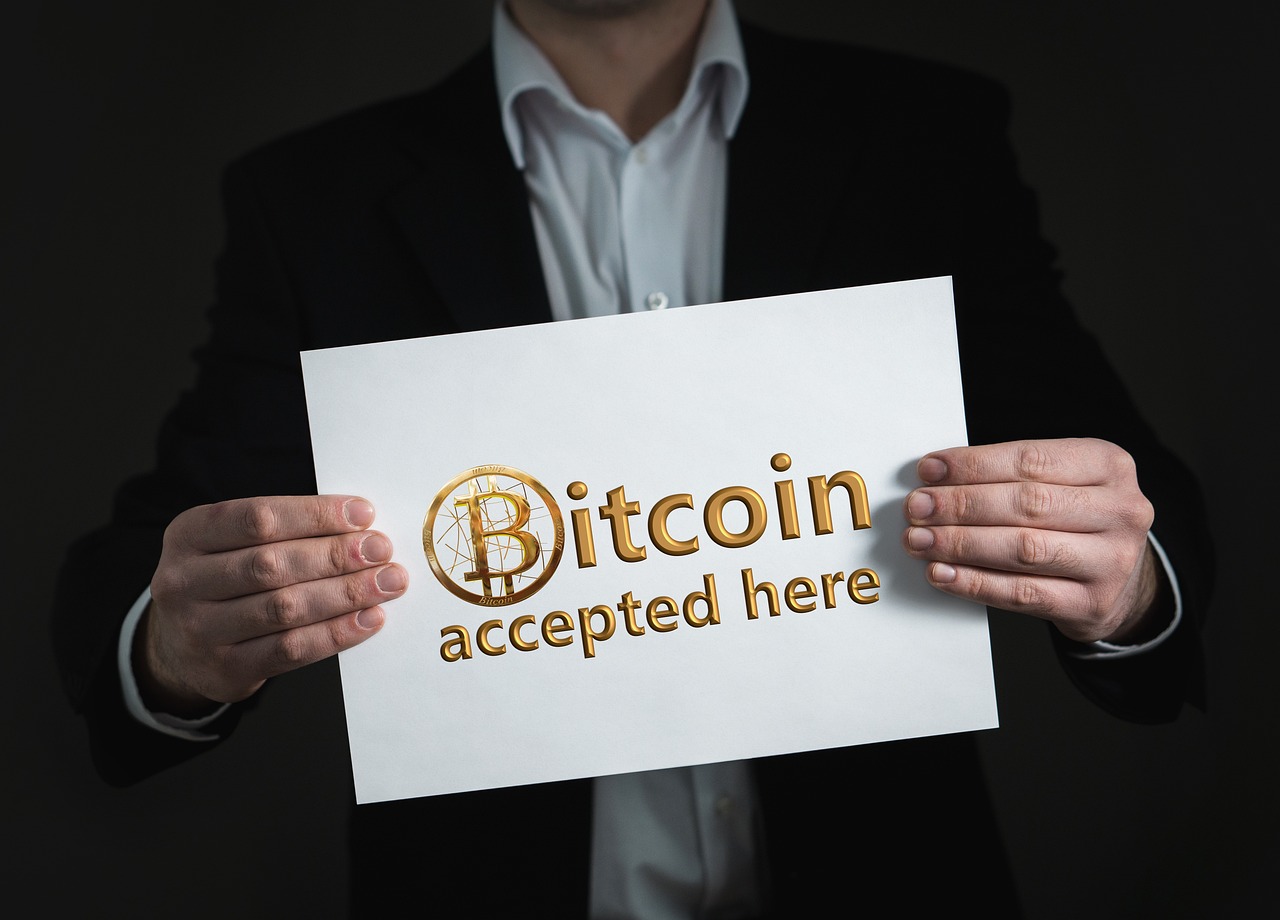
[8. Future Trends in Cryptocurrency Wallets]
As we look forward to 2025, the landscape of cryptocurrency wallets is poised for significant transformation. The rapid evolution of technology and user needs is shaping how we interact with digital assets. One of the most exciting trends is the integration with decentralized finance (DeFi). As DeFi continues to gain traction, wallets are adapting to facilitate seamless access to these platforms. Imagine a scenario where your wallet not only stores your cryptocurrencies but also allows you to lend, borrow, and earn interest on your assets without the need for intermediaries. This shift will empower users, providing them with more control over their financial futures.
Another trend to watch is the enhanced user interfaces that prioritize user experience. As more individuals enter the cryptocurrency space, the need for intuitive and user-friendly designs becomes crucial. Wallets are expected to adopt cleaner layouts, simplified navigation, and educational resources to help users understand their functionalities better. It's like upgrading from a clunky old flip phone to a sleek smartphone—everything becomes more accessible and enjoyable.
Moreover, security will remain at the forefront of wallet development. With cyber threats becoming increasingly sophisticated, wallets will implement advanced security features such as biometric authentication, multi-signature transactions, and even AI-driven fraud detection systems. These enhancements will not only protect users' assets but also build trust in the cryptocurrency ecosystem. Just as we lock our doors at night, we will need to ensure our digital wallets are fortified against potential breaches.
Furthermore, we can expect a rise in cross-platform compatibility. Users will demand wallets that can seamlessly operate across various devices—be it mobile, desktop, or even smartwatches. This versatility will allow for a more cohesive user experience, enabling individuals to manage their assets anytime, anywhere. Imagine checking your crypto portfolio on your smartwatch while waiting for your coffee—convenience at its finest!
Lastly, the concept of social wallets is gaining momentum. These wallets will incorporate social features, allowing users to share transactions, collaborate on investments, and even engage in community-driven initiatives. This social aspect can foster a sense of community among users, making cryptocurrency management not just a solitary task but a shared experience. Think of it as having a digital wallet that doubles as a social network, where you can discuss trends and share insights with friends.
- What is the most important feature to look for in a cryptocurrency wallet?
Security is paramount. Look for wallets that offer two-factor authentication, biometric security, and backup options. - Are hardware wallets better than software wallets?
Hardware wallets are generally considered more secure because they store your keys offline, whereas software wallets are more convenient for everyday transactions. - Can I use multiple wallets for my cryptocurrencies?
Absolutely! Many users choose to use a combination of hardware, software, and mobile wallets to diversify their security and accessibility. - What should I do if I lose access to my wallet?
Make sure to have a backup of your wallet's recovery phrase. This will allow you to restore access to your funds.
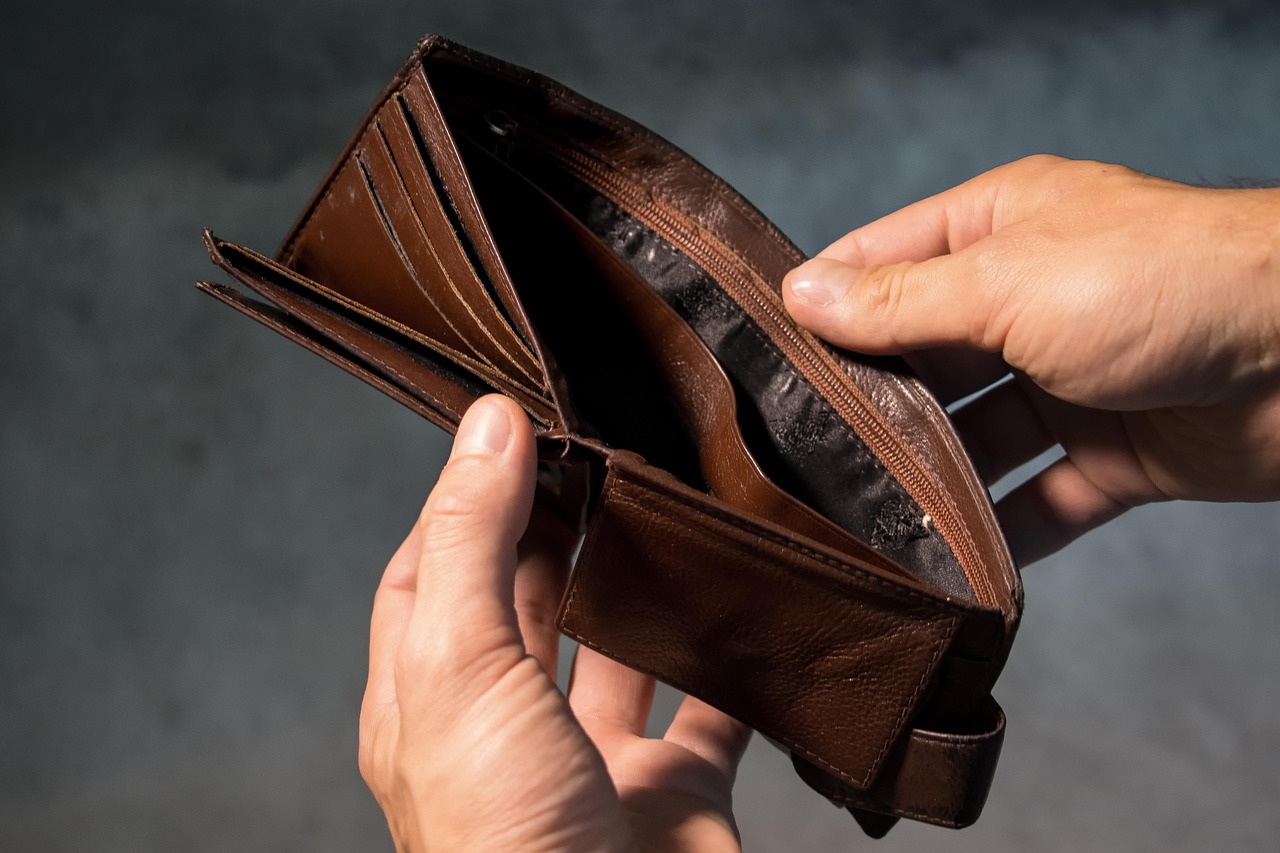
[8.1. Integration with DeFi]
As we venture deeper into the world of cryptocurrencies, one of the most exciting developments is the integration of cryptocurrency wallets with Decentralized Finance (DeFi). DeFi is revolutionizing the financial landscape by allowing users to engage in lending, borrowing, and trading without intermediaries. This shift not only democratizes financial services but also presents a unique opportunity for wallet providers to enhance their offerings.
In 2025, we can expect wallets to seamlessly connect with DeFi platforms, enabling users to manage their assets and engage in decentralized transactions all from one interface. Imagine being able to lend your cryptocurrencies directly from your wallet, earning interest while maintaining full control over your assets. This convenience is set to transform how we interact with our digital currencies.
Moreover, the integration of DeFi features into wallets will likely include:
- Yield Farming: Users can easily participate in yield farming directly from their wallets, maximizing their returns on investments.
- Liquidity Pools: Wallets may offer users the ability to contribute to liquidity pools, facilitating trading on decentralized exchanges.
- Cross-Chain Compatibility: With the rise of multi-chain ecosystems, wallets will support transactions across different blockchain networks, broadening user options.
Additionally, the user experience is expected to improve significantly. Wallets will incorporate advanced analytics and dashboards that provide real-time insights into asset performance, making it easier for users to make informed decisions. With intuitive interfaces, even those new to DeFi will find it accessible and engaging.
However, while the integration of wallets with DeFi presents numerous benefits, it also raises questions about security and user responsibility. Users must remain vigilant, as the decentralized nature of DeFi can expose them to risks such as smart contract vulnerabilities and phishing attacks. Therefore, it’s crucial for wallet providers to implement robust security measures, including multi-signature functionalities and real-time alerts for suspicious activities.
In conclusion, the integration of cryptocurrency wallets with DeFi is not just a trend; it’s a fundamental shift in how we perceive and utilize our digital assets. As these technologies evolve, they will empower users to take control of their financial futures in ways we are only beginning to imagine.
Q1: What is DeFi?
A1: DeFi, or Decentralized Finance, refers to a financial system built on blockchain technology that allows users to lend, borrow, and trade without traditional intermediaries like banks.
Q2: How does wallet integration with DeFi work?
A2: Wallet integration with DeFi allows users to manage their cryptocurrencies and engage in DeFi activities, such as lending and yield farming, directly from their wallets.
Q3: Are DeFi wallets secure?
A3: While many DeFi wallets incorporate advanced security features, users should always practice caution and follow best security practices to protect their assets.
Q4: Can I use my existing wallet for DeFi?
A4: It depends on the wallet. Many modern wallets are beginning to support DeFi integrations, but you should check if your specific wallet offers these features.

[8.2. Enhanced User Interfaces]
As we move deeper into the world of cryptocurrency, one of the most exciting developments is the enhancement of user interfaces in cryptocurrency wallets. Imagine trying to navigate a complex labyrinth without a map; that’s how many users feel when they encounter clunky, outdated wallet interfaces. Thankfully, wallet developers are stepping up their game, creating interfaces that are not only visually appealing but also intuitive and user-friendly.
In 2025, we can expect to see a significant shift towards streamlined designs that prioritize user experience. This means less clutter, clearer navigation, and features that are easily accessible. Wallets will likely adopt a more minimalistic approach, focusing on essential functions while eliminating unnecessary distractions. For instance, instead of overwhelming users with jargon and complex options, developers will aim to present information in a way that is easy to digest.
Furthermore, the integration of responsive design is becoming increasingly important. With more users accessing their wallets on various devices, from desktops to smartphones, ensuring that the interface adapts seamlessly to different screen sizes is crucial. Imagine being able to manage your digital assets effortlessly, whether you’re at home on your laptop or on the go with your phone. This adaptability will enhance the overall user experience, making cryptocurrency management a breeze.
Another exciting trend is the incorporation of customization options within wallet interfaces. Users will have the ability to tailor their wallet's appearance and functionality to suit their preferences. This could include choosing different themes, rearranging dashboard elements, or even selecting which cryptocurrencies to display prominently. Such personalization not only makes the wallet more enjoyable to use but also helps users feel more connected to their digital assets.
To illustrate the impact of these enhanced user interfaces, consider the following table that compares traditional wallet interfaces with the anticipated advancements:
| Feature | Traditional Wallet Interfaces | Enhanced User Interfaces (2025) |
|---|---|---|
| Design | Cluttered and complex | Minimalistic and intuitive |
| Navigation | Confusing menus | Clear, user-friendly paths |
| Responsiveness | Limited device compatibility | Fully responsive across devices |
| Customization | Fixed layouts | Personalized themes and layouts |
In conclusion, as cryptocurrency continues to gain traction, the need for enhanced user interfaces in wallets will become increasingly apparent. These advancements will not only make the process of managing digital assets more enjoyable but also empower users to engage with their investments confidently. So, whether you’re a seasoned crypto enthusiast or a newcomer, expect a smoother and more personalized experience as wallet interfaces evolve in the coming years.
Q1: What is a cryptocurrency wallet?
A cryptocurrency wallet is a digital tool that allows users to store, manage, and interact with their cryptocurrencies. It can be in the form of software, hardware, or even paper.
Q2: Why are user interfaces important in cryptocurrency wallets?
User interfaces are crucial because they affect how easily users can navigate and manage their digital assets. A well-designed interface can significantly enhance the user experience.
Q3: Will all wallets adopt enhanced user interfaces?
While many wallets are likely to adopt these enhancements, not all will. It's essential to choose wallets that prioritize user experience and regularly update their interfaces.
Q4: How can I ensure my wallet is user-friendly?
Look for wallets that offer demo versions or user reviews highlighting ease of use. A wallet with a clear, intuitive interface is generally a good sign.
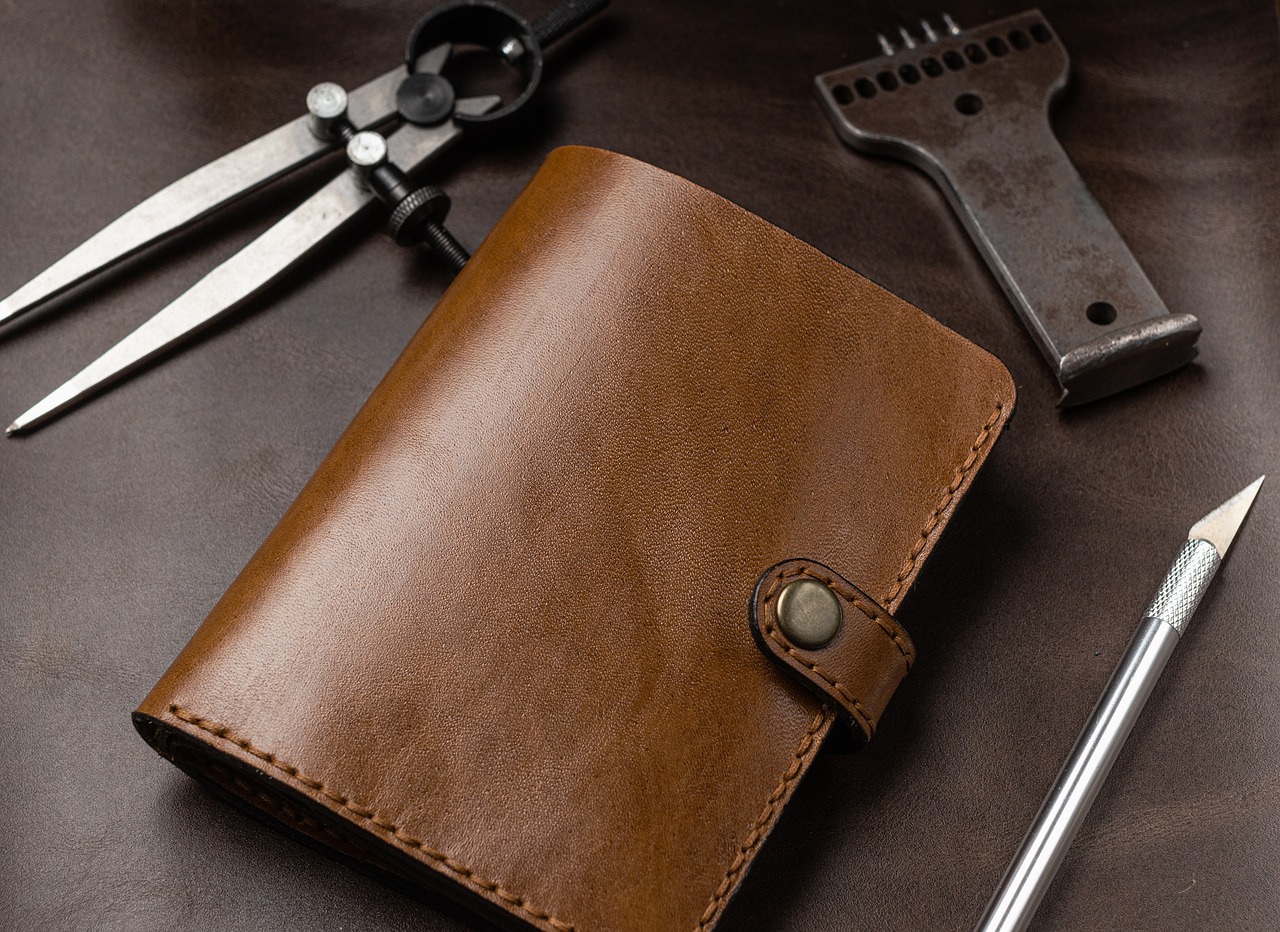
[9. Conclusion]
In conclusion, selecting the right cryptocurrency wallet is not just a matter of convenience; it's a critical decision that can significantly impact the security of your digital assets. As we’ve explored throughout this article, the landscape of cryptocurrency wallets is diverse, with various options tailored to different needs and preferences. Whether you lean towards the robust security of hardware wallets, the accessibility of software wallets, or the on-the-go convenience of mobile wallets, understanding the features and functionalities of each type is key.
It's essential to consider factors such as security features, user experience, and compatibility with various cryptocurrencies when making your choice. Remember, the best wallet for you will depend on your individual needs—whether you are a casual user or a serious investor. Always prioritize wallets that offer strong security measures, such as two-factor authentication and backup options, to safeguard your investments.
As the cryptocurrency market continues to evolve, so too will the technologies and features of wallets. Staying informed about the latest trends and innovations will help you make educated decisions in the future. With the right wallet, you can navigate the world of digital currencies with confidence, knowing that your assets are secure and accessible.
- What is the safest type of cryptocurrency wallet?
Hardware wallets are generally considered the safest option as they store your private keys offline, minimizing the risk of hacks.
- Can I use multiple wallets for my cryptocurrencies?
Absolutely! Many users prefer to use a combination of wallets—such as a hardware wallet for long-term storage and a mobile wallet for everyday transactions.
- How do I recover my wallet if I lose access?
Most wallets provide recovery phrases or backup options. It's crucial to store these securely and follow the wallet's recovery process to regain access.
- Are web wallets safe to use?
While web wallets offer convenience, they are more vulnerable to attacks. Always choose reputable services and enable additional security features like 2FA.
Frequently Asked Questions
- What is a cryptocurrency wallet?
A cryptocurrency wallet is a digital tool that allows you to store, send, and receive cryptocurrencies. It can be software-based (like apps on your phone) or hardware-based (like a USB device). Think of it as a digital bank account for your cryptocurrency assets!
- What are the different types of cryptocurrency wallets?
There are several types of cryptocurrency wallets, including hardware wallets, software wallets, mobile wallets, web wallets, and multi-currency wallets. Each type has its own advantages and disadvantages, depending on your needs for security and convenience.
- Are hardware wallets safe?
Yes, hardware wallets are considered one of the safest options for storing cryptocurrencies. They keep your private keys offline, making them less vulnerable to hacks and malware. However, it’s essential to purchase them from reputable manufacturers to ensure security.
- How do I set up a software wallet?
Setting up a software wallet is usually straightforward. You need to download the wallet app, create an account, and follow the setup instructions. Make sure to secure your wallet with a strong password and enable two-factor authentication for added safety.
- Can I use a mobile wallet for everyday transactions?
Absolutely! Mobile wallets are designed for convenience, allowing you to make transactions on the go. Just ensure you follow best practices for security, like using strong passwords and keeping your device updated.
- What are the risks of using web wallets?
Web wallets can be convenient but come with risks like phishing attacks and hacking. It’s crucial to use wallets from reputable providers and enable security features like two-factor authentication to mitigate these risks.
- What should I look for in a multi-currency wallet?
When choosing a multi-currency wallet, consider features like user interface, compatibility with various cryptocurrencies, security measures, and backup options. A good multi-currency wallet simplifies managing different digital assets in one place.
- How important is two-factor authentication?
Two-factor authentication (2FA) is incredibly important as it adds an extra layer of security to your wallet. Even if someone gets your password, they would still need a second form of verification to access your funds, significantly reducing the risk of unauthorized access.
- What should I do if I lose access to my wallet?
If you lose access to your wallet, having a backup of your recovery phrase is crucial. Most wallets provide a seed phrase during setup that allows you to recover your account. Always store this phrase in a safe place, separate from your wallet.
- What future trends should I be aware of in cryptocurrency wallets?
Future trends in cryptocurrency wallets include better integration with decentralized finance (DeFi) applications, enhanced user interfaces for improved usability, and ongoing advancements in security features to protect users' assets more effectively.



















